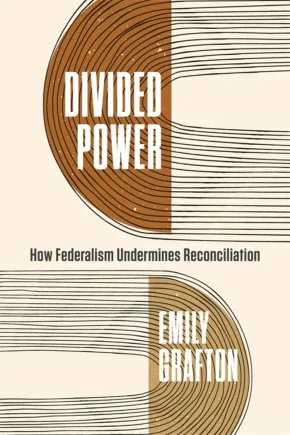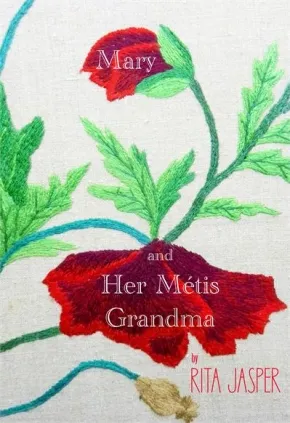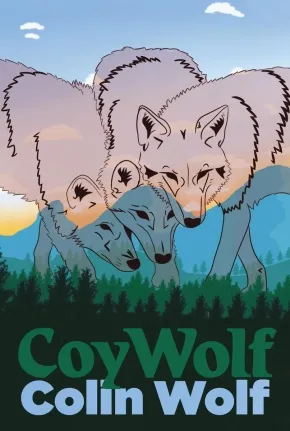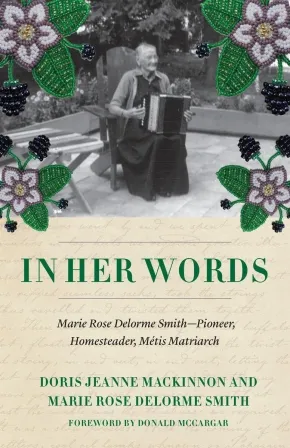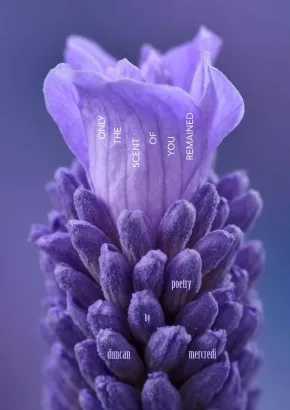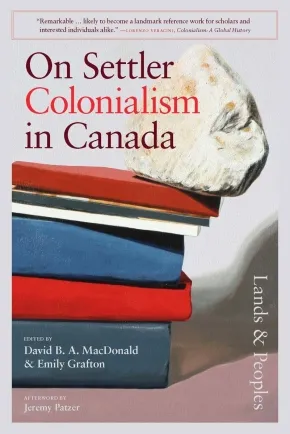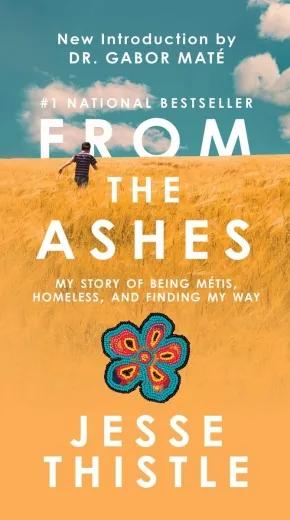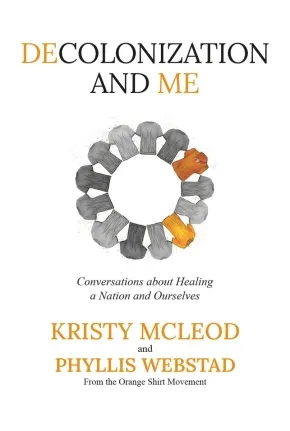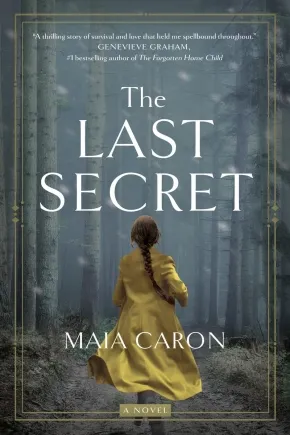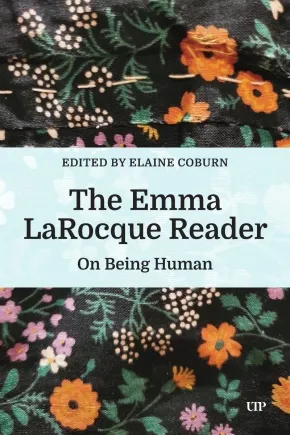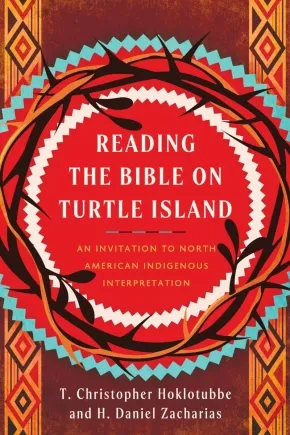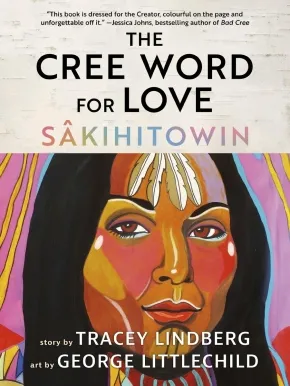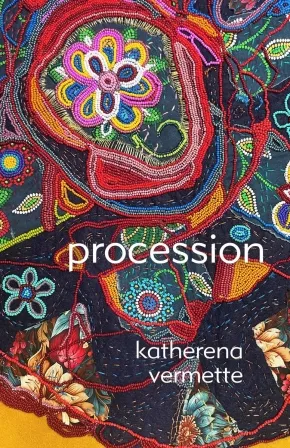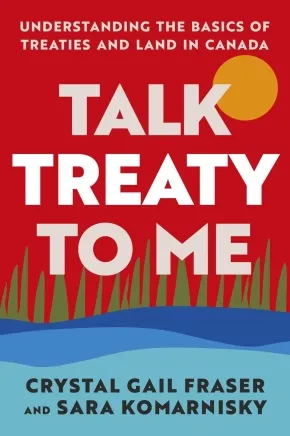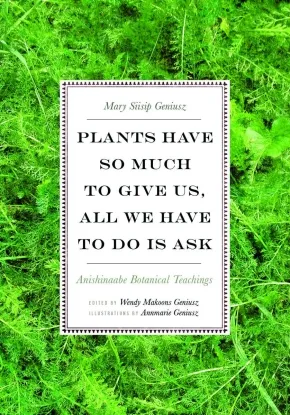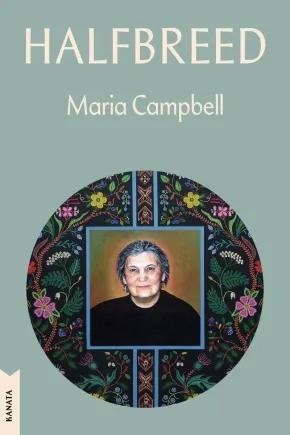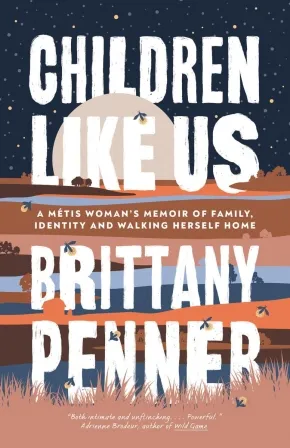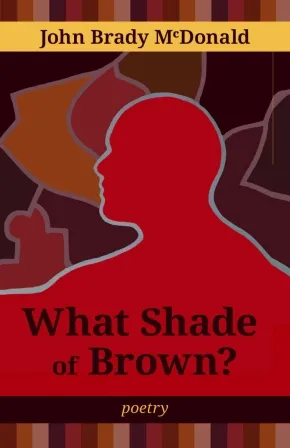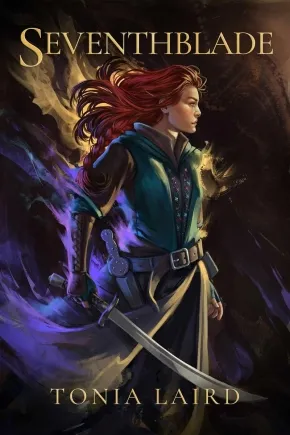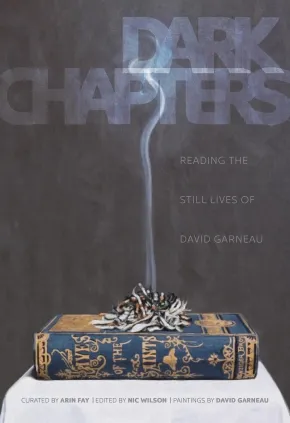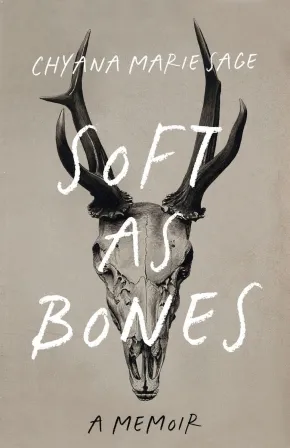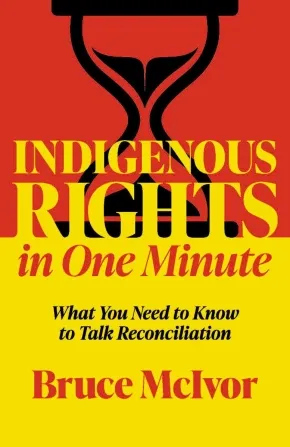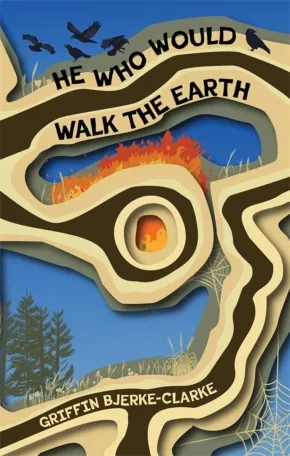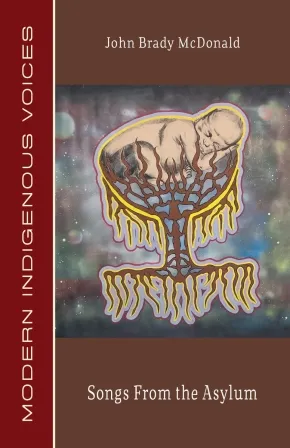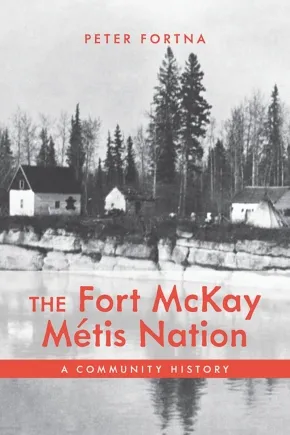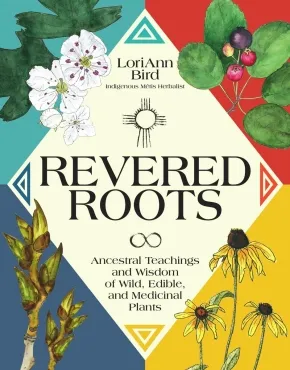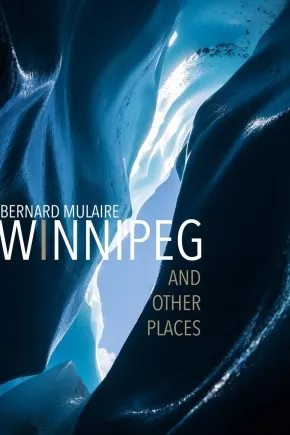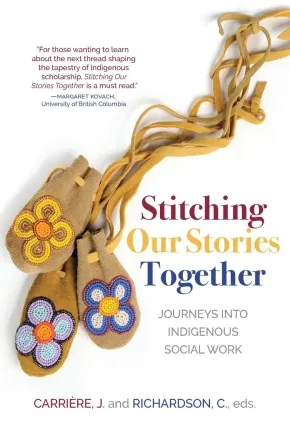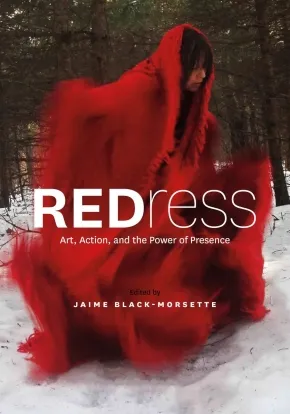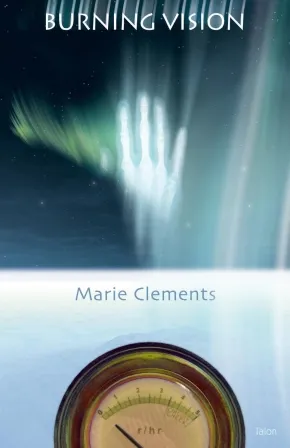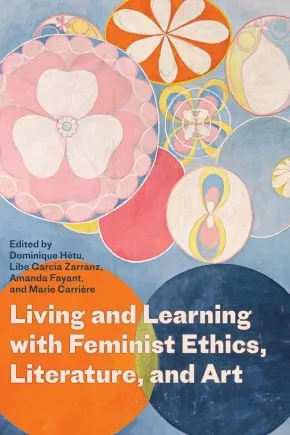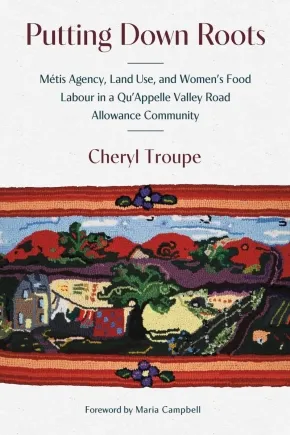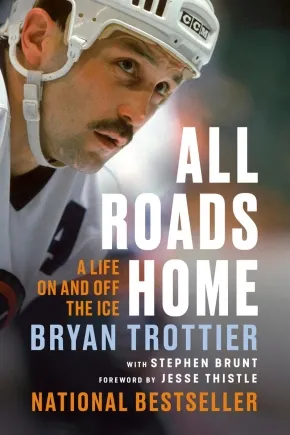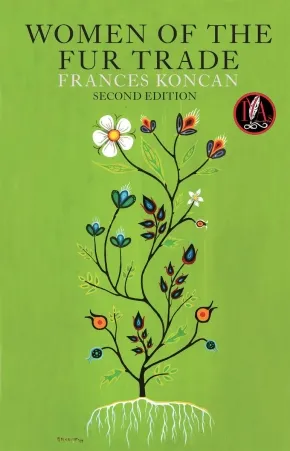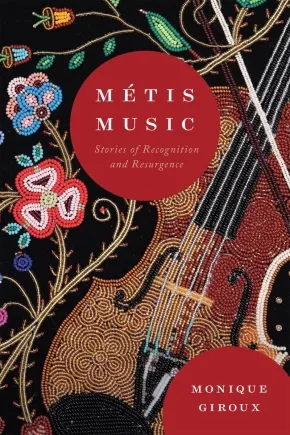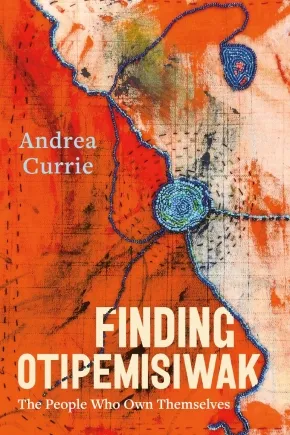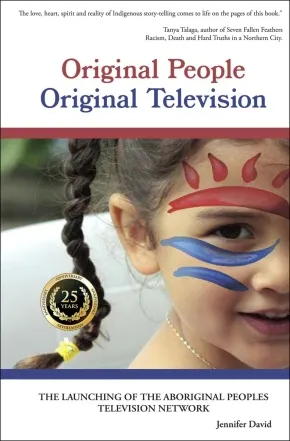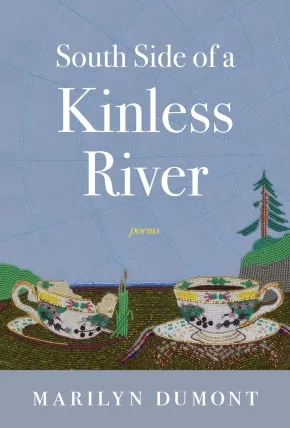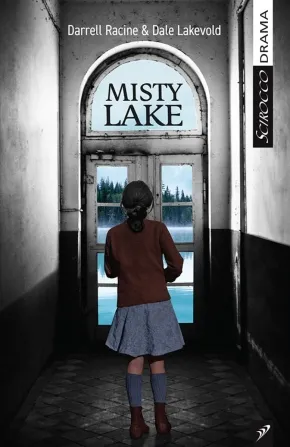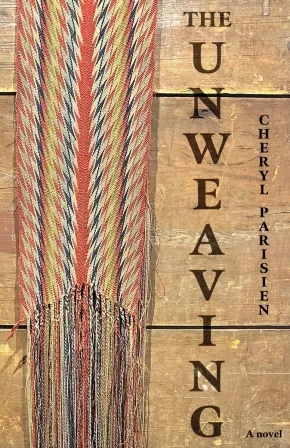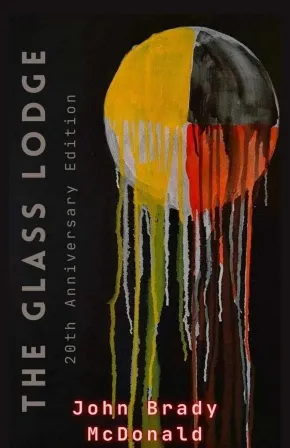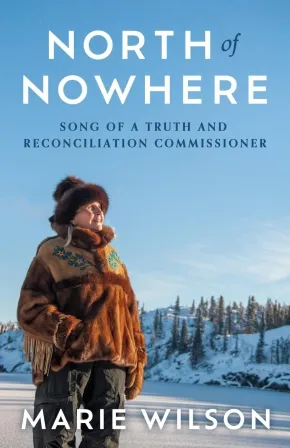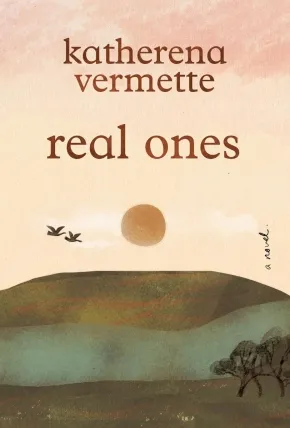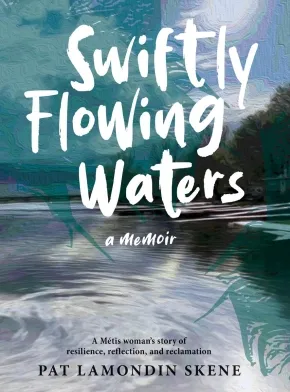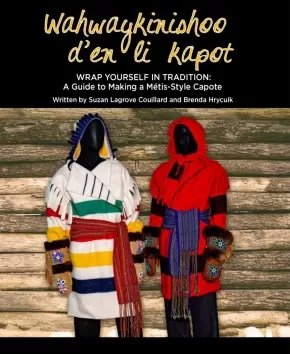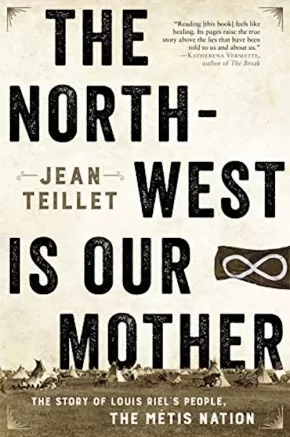
Métis
1
-
15
of
212 Results;
Sort By
Go To
of 15
Divided Power: How Federalism Undermines Reconciliation
$32.00
Format:
Paperback
Reading Level: N/A
ISBN / Barcode: 9781773637723
Synopsis:
Synopsis:
Reconciliation, as set out by the Truth and Reconciliation Commission, is a process of understanding the Canadian state's genocide against Indigenous Peoples and creating a new relationship between Indigenous Peoples and settlers based on mutual respect and dignity. Given the racism and paternalism embedded in the Canadian state and related institutions, building such a relationship is a monumental task, but in addition, there is a major structural roadblock in the way: federalism, the political system that organizes Canadian governance.
Divided Power argues that Canada’s system of federalism, rooted in settler colonialism, has dispossessed Indigenous Peoples for settler benefit. Far from being a neutral, balanced way to distribute responsibilities and powers, the division between the state and provinces and territories obstructs Indigenous Peoples’ agency and governance. Under such coercive political exclusion, how can truth and reconciliation be fully achieved? Emily Grafton meticulously traces the ways that federalism limits the potential for reconciliation and proposes alternative power-sharing models.
Guiding readers through the terrain of debate, Grafton deftly and accessibly merges a political analysis of federalism with a clear assessment of settler colonialism to argue that reconciliation will be incomplete for as long as the current division of powers persists. Divided Power points to a promising approach to holding the Canadian state responsible for integrating the principles of truth and reconciliation into its very foundation.
Reviews
“Emily Grafton explores Canadian federalism – not the usual division of powers between the federal and provincial governments, but between the colonized and the colonizer. Federalism, Grafton argues, was informed by Indigenous political frameworks but has been torqued by colonial assumptions about Indigenous inferiority so as to require colonial dominance and Indigenous subordination. This book is a useful antidote to the complacent endorsement of the settler state status quo, so prevalent in scholarship and in politics.” - Joyce Green, Ktunaxa Nation, Professor Emerita, University of Regina; Elder-Auntie, CPSA Reconciliation Committee
“Grafton exposes the evolution and coloniality of Canadian federalism in its unjust and mundane efforts to diminish Indigenous sovereignties. Divided Power is a tour de force of alternatives, and you’ll never think of federalism the same way after reading it!” - Ajay Parasram, author of Pluriversal Sovereignty and the State
Additional Information
192 pages | 6.00" x 9.00" | Paperback
Mary and her Métis Grandma
$24.95
Format:
Paperback
Text Content Territories:
Indigenous Canadian; Métis;
Reading Level: N/A
ISBN / Barcode: 9781998779895
Synopsis:
Synopsis:
A gripping work of auto-fiction / biography and memoir resulting in historical accountability. Divided into two parts; starting at the turn of the 20th century leading into the 1980's.
Filled with wisdom, grit and honesty, this is the journey of a Métis teenager overcoming personal grief, witnessing the pain of others, and experiencing the healing power of a Grandma’s love.
At times harrowing and instead of succumbing to self-pity Mary will rise above her presumed narrative with courage and love as her Grandma takes Mary under her wing to guide her into the mature woman she will become.
Educator Information
To learn more about this work, such as how the duck character and situation were developed, visit the author's website: https://ritajasperart.com/2025/10/14/the-bus-ride-was-just-ducky/.
Additional Information
250 pages | 5.50" x 8.50" | Paperback
CoyWolf
$18.95
Format:
Paperback
Text Content Territories:
Indigenous Canadian; Métis;
Reading Level: N/A
ISBN / Barcode: 9780369105738
Synopsis:
Synopsis:
Isidor, a half-coyote, half-wolf coywolf, has always struggled to find his place as a half-breed. After the untimely death of his mother, he leaves his community to roam across prairies, forests, and mountains, sharing stories in his search for kinship and belonging. But as Sharp-Tooths are increasingly policed, tagged, or killed to make way for insatiable human expansion, Isidor and his pack are forced to make impossible decisions. Do they retreat to better their chances of survival, or risk everything by joining a resistance of rogue animals to protect what’s left of their homeland?
In this gripping drama, Colin Wolf weaves a powerful allegory through the lives of animals, paralleling the displacement of Métis people and the enduring struggle for Indigenous land rights on Turtle Island. CoyWolf is a hopepunk thriller and a roadmap for young revolutionaries navigating the realities of resistance, doing your best, and learning the wisdom of those who have walked the path before.
Additional Information
112 pages | 5.12" x 7.62" | Paperback
In Her Words: Marie Rose Delorme Smith—Pioneer, Homesteader, Métis Matriarch
$29.95
Format:
Paperback
Text Content Territories:
Indigenous Canadian; Métis;
Reading Level: N/A
ISBN / Barcode: 9781772035209
Synopsis:
Synopsis:
Part historical biography, part compilation of the written works of Mary Rose Delorme Smith (1861–1960), a prolific and accomplished Métis woman.
Born into a prominent fur-trading family and remembered as a community builder and rancher, Marie Rose Delorme Smith (1861–1960) is seldom recognized as a writer and chronicler of Métis and Prairie history. Fluent in French, English, and likely Michif, Delorme Smith recorded a wealth of written records and stories throughout her long life, in the form of letters, published articles, unpublished manuscripts, and personal documents.
Donated to public archives following her death, these written works garnered some interest among scholars and biographers over the years, as prominent Indigenous women gradually found a place in the histories they had been left out of for generations. Delorme Smith became the subject of biographies and scholarly research, and she was finally recognized as a “National Historic Person” by the Canadian government in 2022. However, the recognition bestowed upon her rarely highlighted her own words, which reveal so much about her life, Métis history, and Prairie life in the late nineteenth and early twentieth centuries.
For the first time, historian and biographer Doris Jeanne MacKinnon presents an extensive array of Delorme Smith’s writings, preserved verbatim, and puts them in historical and social context. This fascinating collection of documents from a bygone era reveals the strength, intellect, and leadership of a fascinating Métis martriarch.
Additional Information
276 pages | 5.50" x 8.50" | b&w photographs | Paperback
Only the Scent of You Remained
$24.95
Format:
Paperback
Text Content Territories:
Indigenous Canadian; First Nations; Cree (Nehiyawak); Métis;
Reading Level: N/A
ISBN / Barcode: 9781998779871
Synopsis:
Synopsis:
Duncan Mercredi was Winnipeg's Poet Laureate in 2021. In this frank, raw, and honest collection the poet chases down the river of who he is. Each bend, each stone, every waterfall, a sharing of self. Then the writings can be rolled up and when the time comes, the time that he leaves the place he calls home, they will be placed on the sacred fire. To return to where they came from. You are invited to walk with the author during intimate reflection and pause to remember the people who have been a part of his life and journey, the ones who influenced him, both good and bad. The paths taken, the roads travelled that led him to this city. As the wick burns the last of its wax we recognize its existence as the scent of smoke still remains long after the light goes out.
Additional Information
160 pages | 5.00" x 7.50" | Paperback
On Settler Colonialism in Canada: Lands and Peoples
$36.95
Editors:
Format:
Paperback
Text Content Territories:
Indigenous Canadian;
Reading Level: N/A
ISBN / Barcode: 9781779400642
Synopsis:
Synopsis:
An unflinching examination of the impacts of settler colonialism from first contact to the contemporary nation state.
On Settler Colonialism in Canada: Lands and Peoples is the first installment in a comprehensive collection investigating settler colonialism as a state mandate, a structuring logic of institutions, and an alibi for violence and death. The book examines how settler identities are fashioned in opposition to nature and how eras of settler colonialism have come to be defined. Scholars and thinkers explore how settlers understood themselves as servants of empire, how settler identities came to be predicated on racialization and white supremacy, and more recently, how they have been constructed in relation to multiculturalism.
Featuring perspectives from Indigenous, Black, mixed-race, and other racialized, queer, and white European-descended thinkers from across a range of disciplines, On Settler Colonialism in Canada: Lands and Peoples addresses the fundamental truths of this country. Essays engage contemporary questions on the legacy of displacement that settler colonialism has wrought for Indigenous people and racialized settlers caught up in the global implications of empire.
Asserting that reconciliation is a shared endeavor, the collection’s final section exposes the myth at the heart of Canada’s constitutional legitimacy and describes the importance of affirming Indigenous rights, protecting Indigenous people (especially women) from systemic violence, and holding the Canadian settler nation state—which has benefited from the creation and maintenance of genocidal institutions for generations—accountable.
Reviews
“Remarkable...likely to become a landmark reference work for scholars and interested individuals alike.” — Lorenzo Veracini, author of Colonialism: A Global History
“Positive shared futures with all our relations depend on perpetual truth-telling and (re)conciliation. This book guides us through the dark and toward the light.”— David Garneau, author of Dark Chapters
"A thought-provoking and insightful ‘must read’ for all those seeking reconciliation based on truth, justice, and accountability.” — Paulette Regan, author of Unsettling the Settler Within and former research director for the Truth and Reconciliation Commission of Canada
"The truth will set you free, but first it will piss you off! That observation best describes the power of this fabulous book that every Canadian should read.”— Val Napoleon, Professor and Law Foundation Chair of Indigenous Justice and Governance, University of Victoria
Educator & Series Information
This book is part of the On Settler Colonialism in Canada series.
Table of Contents
Acknowledgements
Contributor Biographies
David B MacDonald and Emily Grafton, “Introduction: Critical Engagements with Canadian Settler Colonialism: Colonization, Land Theft, Gender Violence, Imperialism, and Genocide”
Section 1: Considering Violence and Genocide in the Canadian Settler State
Karine Duhamel, “I feel like my spirit knows violence: interrogating the language of temporality and crisis for missing and murdered Indigenous women, girls, and LGBTQ people.”
James Daschuck, “The Battleford hangings and the rise of the settler colonial state.”
David B MacDonald, “Match and Exceed: Why Recognizing Genocide in Canada is Only the First Step in Promoting Indigenous Self-Determination.”
Malissa Bryan, “Unsettled Arrivants: Imagining Black & Indigenous Solidarity Under Settler Colonialism.”
Angie Wong, “Labouring and Living in Canada: Early Chinese Arrivants and Making Settler Colonial Canada.”
Section 2: Logics of Empire, Colonialism, and Unsettlement
Liam Midzain-Gobin, “Imperial circulation, implicatedness and co-conspiracy, racialized interruptions of settler colonialism in Canada.”
Peter Kulchyski, “A Contribution to Periodizing Settler Colonial History in Canada”
Ajay Parasram, “Learning Settler Colonialism: Double Diaspora and Transnational Imperial Refraction.”
Andrew Woolford, “Settler natures: becoming settler against water.”
Section 3: Settler colonial society: Relating, Reckoning, and Unreconciliation
Chris Lindgren and Michelle Stewart, “Reckoning and Unreconciled: Neil Stonechild, Starlight Tours, and Racialized Policing in the Settler State.”
Fazeela Jiwa, “On shitheads and revolutionaries: claiming my displaced kin.”
Jerome Melancon, “Relying upon the Colonial Project: Francophone Communities in Minority Settings within the Bilingual Settler Colonial State.”
Desmond McAllister, “Straddling Different Worlds.”
Bernie Farber and Len Rudner, “B’Chol Dor v’Dor: In each and Every Generation.”
Section 4: Asserting Indigenous Knowledges in settler colonial Canada
Solomon Ratt (poetry) “stolen childhood” and “asastîwa – They pile up”
Joyce Green, “Being and Knowing Home.”
Rebecca Major, “Surviving Institutions in Canada’s Polite Society.”
Paul Simard Smith, “On the Illegitimacy of the Canadian Constitutional Order.”
Emily Grafton, “Resistance and Resurgence: Asserting Indigenous Peoples’ Rights in Settler Colonial Canada.”
“Afterword,” Jeremy Patzer
Additional Information
384 pages | 6.02" x 9.01" | Paperback
Beaver Hills Forever: A Metis Poetic Novella
$21.95
Format:
Paperback
Text Content Territories:
Indigenous Canadian; Métis;
Reading Level: N/A
ISBN / Barcode: 9781834050089
Synopsis:
Synopsis:
An irreverent and playful novella of Metis voices that reflects the complexities of contemporary prairie life
Conor Kerr's 2024 novel Prairie Edge was a finalist for both the Giller Prize and the Atwood Gibson Writers' Trust of Canada Fiction Prize. His latest book, Beaver Hills Forever, takes a riotous, uncompromising look at the intertwined lives of four characters, each an abstract expression of the few paths available to Metis people on the Prairies. In alternating poetic verses, Buddy, Baby Momma, Fancy University Boy, and Aunty Prof share their inner dreams, hardships, delusions of grandeur, and existential plights. While the messy day-to-day is created by their own doing, the lives of these four individuals are doubly compromised by Canada's colonial education system and resource extraction industries.
A beguiling and genre-bending work, Beaver Hills Forever offers a moving, necessary exploration of education, labour, and the dynamic, ever-changing bonds that bring us back to each other. Here is a diverse, funny, pitch-perfect chorus of voices that rings loud and true over the wide prairie landscape.
Reviews
"Not every Metis kid / Needs a sad story," says a character in Conor Kerr's propulsive and deeply entertaining new work, where each bone-clean sentence holds a galaxy of stories in its marrow. Kerr is part of a vital contemporary movement that is reimagining what our literatures can be and what they can do. Beaver Hills Forever is a reminder that laughter and passion are as much a part of the narrative as struggle. In these pages, you'll find voices that demand to be heard, felt, and remembered." — Carleigh Baker, author of Last Woman and Bad Endings
"Much like his prose, Conor Kerr's Beaver Hills Forever imbues the language of everyday Indigenous life with a poetic charm that is just incredibly readable and relatable. This book is truly multitudinous: a love story, an anti-love story, a critique of neoliberalism, an ode to the Prairies, and, above all, proof that even our smallest desires are worthy of sustained poetic consideration." — Billy-Ray Belcourt, author of Coexistence
"Beaver Hills Forever is full of raunch and riot. Conor Kerr's ability to gravitate around the embodied truths of institutional whiteness, class, settler colonization, and the Indigenous (Metis) experience in the moraine of amiskwaciy is rebellious in its desire to not pathologize or rationalize the violent backdrops of its animate setting. With his skilled hand, Kerr makes sure there is "room for [all] in the digital economy of the Future." — Joshua Whitehead, author of Jonny Appleseed
"Aho, fancy reader! Welcome to Conor Kerr's Beaver Hills Forever. We'll laugh, we'll cry. We'll smoke, we'll die. Etc, etc. Beaver Hills Forever is funny, heartfelt, poetic, badass. It's Bald Boy, Goodbye, Sad Story, Indigenous Canon. Etc, etc. Magpie cackles, Metis literatures, Aunty Prof wonders, realizes, smudges, feel-good energy. Fuck all the ongoing bullshit internal politics and academic distortion and just hear the truth, etc, etc." — Jordan Abel, author of Empty Spaces and NISHGA
Additional Information
88 pages | 6.00" x 9.00" | Paperback
From the Ashes: My Story of Being Métis, Homeless, and Finding My Way (PB)
$13.99
Format:
Paperback
Text Content Territories:
Indigenous Canadian; First Nations; Cree (Nehiyawak); Métis;
Reading Level: N/A
ISBN / Barcode: 9781668213728
Synopsis:
Synopsis:
In this extraordinary and inspiring debut memoir, Jesse Thistle, once a high school dropout and now a rising Indigenous scholar, chronicles his life on the streets and how he overcame trauma and addiction to discover the truth about who he is.
If I can just make it to the next minute... then I might have a chance to live; I might have a chance to be something more than just a struggling crackhead.
From the Ashes is a remarkable memoir about hope and resilience, and a revelatory look into the life of a Métis-Cree man who refused to give up.
Abandoned by his parents as a toddler, Jesse Thistle briefly found himself in the foster-care system with his two brothers, cut off from all they had known. Eventually the children landed in the home of their paternal grandparents, but their tough-love attitudes meant conflicts became commonplace. And the ghost of Jesse’s drug-addicted father haunted the halls of the house and the memories of every family member. Struggling, Jesse succumbed to a self-destructive cycle of drug and alcohol addiction and petty crime, spending more than a decade on and off the streets, often homeless. One day, he finally realized he would die unless he turned his life around.
In this heartwarming and heartbreaking memoir, Jesse Thistle writes honestly and fearlessly about his painful experiences with abuse, uncovering the truth about his parents, and how he found his way back into the circle of his Indigenous culture and family through education.
An eloquent exploration of what it means to live in a world surrounded by prejudice and racism and to be cast adrift, From the Ashes is, in the end, about how love and support can help one find happiness despite the odds.
Awards
- 2020 Indigenous Voices Awards Winner for Published Prose in English
- Winner, Kobo Emerging Writer Prize Nonfiction
- Winner, High Plains Book Awards
- An Indigo Book of the Year
Reviews
“From the Ashes hits you like a punch in the gut. It’s an unflinching, heartrending and beautifully written story of survival against seemingly impossible odds. But it’s also a book that should make you furious. Thistle paints a vivid portrait of a country seemingly incapable of doing right by Indigenous youth or by those struggling with homelessness, addiction and intergenerational trauma. That he survived to tell this story is truly a miracle. Still, one question haunts me after finishing this powerful and devastating book: How do we ensure that the next generation isn’t forced to navigate a broken system that takes their lives for granted and fails them at every turn? My greatest hope, then, is that From the Ashes will be the wakeup call Canada needs.” — IAN MOSBY, historian and author of Food Will Win the War
Educator Information
Caution: Deals with mature subject matter.
Additional Information
368 pages | 6.00" x 9.00"
Decolonization and Me: Conversations about Healing a Nation and Ourselves
$30.99
Text Content Territories:
Indigenous Canadian; First Nations; Salish; Interior Salish; Secwepemc (Shuswap); Stswecem'c Xgat'tem; Métis;
Reading Level: N/A
ISBN / Barcode: 9781778540684
Synopsis:
Synopsis:
This book invites readers to step into a space of reflection on your personal relationship with truth, reconciliation, and Orange Shirt Day.
Written in response to the increase of residential school denialism, Phyllis Webstad and Kristy McLeod have collaborated to create a book that encourages readers to face their own biases. This book challenges readers through a series of sensitive conversations that explore decolonization, Indigenization, healing, and every person’s individual responsibility to truth and reconciliation. Centered around the Orange Shirt Day movement, and a National Day for Truth and Reconciliation, these conversations encourage readers to unpack and reckon with denialism, biases, privilege, and the journey forward, on both a personal and national level.
Within each chapter, Phyllis Webstad draws on her decade of experience (sharing her Orange Shirt Story on a global level and advocating for the rights of Indigenous Peoples) to offer insights on these topics and stories from her personal journey, which co-author and Métis scholar, Kristy McLeod, helps readers to further navigate. Each section includes real denialist comments taken from social media and Kristy's analysis and response to them. Through empathy-driven truth-telling, this book offers an opportunity to witness, reflect, heal, and be intentional about the seeds we hope to plant for the future, together.
Additional Information
350 pages | 5.70" x 8.25" | Hardcover
The Last Secret: A Novel
$25.00
Format:
Paperback
Reading Level: N/A
ISBN / Barcode: 9780385688826
Synopsis:
Synopsis:
Ukraine, 1944
As the world around her is ripped apart by war and infiltrated by Nazi soldiers, Savka Ivanets works as a medic for the Ukrainian resistance, stitching wounds by day, stealing supplies by night, and dodging firefights between the SS and Soviet partisans. When her husband, Marko, a reluctant member of the Waffen-SS, forces her to deliver a coded message to an underground bunker, she’s terrified. But when her mission doesn’t go as planned, and her son, Taras, is kidnapped by the KGB, Savka fears she’ll never see him again.
Salt Spring Island, 1972
For Jeanie Esterhazy, the world, with its whispers and curious eyes, is too much to bear. Ever since the horrific accident that left her badly scarred, Jeanie, unable to remember anything about that awful day, has pulled away from society, utterly isolated.
Then a mysterious stranger appears at her house, and Jeanie suddenly begins having flashbacks about the night of her wedding—flashbacks that hold answers to the questions she’s had for years; flashbacks that make her realize the world around her is not as it seems.
Weaving together Savka and Jeanie's stories with artful precision, The Last Secret is at once luminous and transporting, a brilliant and impossible-to-forget story of love, hope, and the breathtaking resilience of women.
Reviews
"An extraordinarily powerful novel cinematically weaving one gripping layer into the next. From the frozen hellscape of Eastern Europe during WW2 to the lush green of Salt Spring Island in Canada, The Last Secret delivers a thrilling story of survival and love that held me spellbound throughout. Brava, Ms. Caron! An easy five stars." —Genevieve Graham, #1 bestselling author of The Forgotten Home Child
"How delicious to discover sleepy Salt Spring Island, BC, caught up in the icy tendrils of a Cold War thriller. Sweeping from hardship to heartache, The Last Secret is a timely reminder of the improbable bonds forged, broken and recast on World War II’s Eastern Front. Here, revenge is served tundra-cold, but with a dash of sea salt and fire." —Shelley Wood
Additional Information
416 pages | 6.09" x 8.91" | Paperback
The Emma LaRocque Reader: On Being Human
$39.95
Editors:
Format:
Paperback
Text Content Territories:
Indigenous Canadian; Métis;
Reading Level: N/A
ISBN / Barcode: 9781487551889
Synopsis:
Synopsis:
Emma LaRocque was born in 1949 in Lac La Biche into a Cree-speaking Métis family. She grew up in a one-room, kerosene-lit log cabin built by her father. At the age of nine, she fought her parents to attend school, where she encountered English and the colonizer’s harmful stereotypes of Indigenous peoples. Confronting the contradictions of colonialism sparked her journey as a writer and scholar, as she sought to understand the dissonance between her identity and the world around her.
The Emma LaRocque Reader is a comprehensive collection of her most significant writings, poetry and prose, offering an intimate window into the mind of one of Canada’s foremost Indigenous scholars. Through her work, LaRocque provides profound insights into the intersections of colonialism, sexism, and racism in Canada, while also critically celebrating the beauty of her community and culture. In the afterword, she reflects on fifty years of challenging the colonial enterprise. A vital contribution to postcolonial literature, The Emma LaRocque Reader intertwines the personal and the political to explore what it means to be human, offering a powerful testament to Indigenous resistance, resilience, and vision.
This collection brings together the works of Métis scholar Emma LaRocque, offering a half-century of her poetry and prose, and shedding new light on Canada, colonialism, and Indigenous resistance.
Educator Information
Chapters
Foreword by Armand Ruffo
Preface by Elaine Coburn
Acknowledgments by Emma LaRocque
Acknowledgments of Permissions to Reprint
Introduction by Elaine Coburn
1975 A Personal Essay on Poverty (Excerpt from Defeathering the Indian)
1983 The Métis in English Canadian Literature
1988 On the Ethics of Publishing Historical Documents
1989 Racism Runs through Canadian Society
1990 Preface: Here Are Our Voices: Who Will Hear?
1990 Geese (poem)
1990 Nostalgia (poem)
1990 “Progress” (poem)
1990 The Red in Winter (poem)
1990 Incongruence (poem)
1990 Loneliness (poem)
1990 Beggar (poem)
1990 Tides, Towns, and Trains
1992 My Hometown, Northern Canada, South Africa (poem)
1993 Violence in Aboriginal Communities
1994 Long Way from Home (poem)
1996 The Colonization of a Native Woman Scholar
1996 When the Other Is Me: Native Writers Confronting Canadian Literature
2001 Native Identity and the Métis: Otehpayimsuak Peoples
2001 From the Land to the Classroom
2004 When the Wild West Is Me
2006 Sweeping (poem)
2006 Sources of Inspiration: The Birth of "For the Love of Words": Aboriginal Writers of Canada
2007 Métis and Feminist
2009 Reflections on Cultural Continuity through Aboriginal Women’s Writings
2010 Native Writers Reconstruct: Pushing Paradigms
2013 For the Love of Place – Not Just Any Place: Selected Métis Writings
2015 “Resist No Longer”: Reflections on Resistance Writing and Teaching
2016 Contemporary Métis Literature: Resistance, Roots, Innovation
2016 Colonialism Lived
2017 Powerlines (poem)
2022 Wehsakehcha, Comics, Shakespeare, and the Dictionary
2023 Afterword
Index
Additional Information
348 pages | 6.00" x 9.00" | Paperback
Reading the Bible on Turtle Island: An Invitation to North American Indigenous Interpretation
$39.49
Format:
Paperback
Text Content Territories:
Indigenous American; Indigenous Canadian;
Reading Level: N/A
ISBN / Barcode: 9781514007563
Synopsis:
Synopsis:
Join the dance of North American Indigenous interpretations of Christian Scripture
In Reading the Bible on Turtle Island, Indigenous scholars Chris Hoklotubbe and Danny Zacharias explore what it means to read the Bible from the lens of Indigenous peoples in North America. Exploring the intersection of Scripture, Cultural Traditions, Hearts and Minds, and Creation, they affirm Creator's presence with Indigenous people since the beginning. By recovering these rich histories, this book offers a fresh reading of Scripture that celebrates the assets, blessings, and insights of Indigenous interpretation.
Indigenous culture has often been dismissed or deemed problematic within Western Christian circles, and historical practices have often communicated that Indigenous worldviews have little to offer the church or its understanding of Scripture. Hoklotubbe and Zacharias challenge this perspective, reasserting the dignity of these cultures that were condemned through colonial practices and showing how Indigenous interpretations bring invaluable insights to all of God’s people.
In Reading the Bible on Turtle Island, Hoklotubbe and Zacharias
- Affirm the dignity and value of Indigenous cultures and their contributions to hermeneutics.
- Explore the intersection of the Bible with Indigenous traditions.
- Delve deeply into the stories of Scripture alongside the complex histories of Indigenous communities in North America.
- Celebrate the unique blessings and insights of Indigenous interpretation.
- Offer a fresh, transformative reading of the Bible that speaks to all of God’s people.
Reading the Bible on Turtle Island is a vital resource for scholars who are interested in the intersection of biblical studies and social location, who are seeking to explore Scripture through an Indigenous hermeneutic, or who desire to learn more about the contributions of Indigenous worldviews to Biblical interpretation.
Reviews
"We have been waiting for a book like this—one that presents indigenous biblical interpretation. T. Christopher Hoklotubbe and Daniel Zacharias call their approach to biblical interpretation Turtle Island Hermeneutics. I call it groundbreaking, urgent, and necessary at this present moment. Now students studying the Bible in seminary or college will have a text that will help them do what few books on interpretation can do—take the dirt, the water, the air, our animal kin, and of course, indigenous thought and life seriously. We are now in a new day for biblical scholarship." — William James Jennings, Andrew W. Mellon Professor of Systematic Theology and Africana Studies at Yale University Divinity School
"Some years ago, I was told that Indigenous contributions to biblical scholarship would, at best, be superficial. The real work, after all, had already been done by European scholars. Reading the Bible on Turtle Island justifies my contention that this was not so. T. Christopher Hoklotubbe and Daniel Zacharias unpack Indigenous understandings of the biblical narrative for us in profoundly earthy and culturally complex ways. For the first time ever, many Indigenous people have read themselves into the biblical story and, together with the authors, have answered Lamin Sanneh's 2003 question, 'Whose religion is Christianity?' 'It's ours,' they have said!"— Terry LeBlanc, director emeritus and elder in residence of NAIITS: An Indigenous Learning Community
"Reading the Bible on Turtle Island introduces us to the riches of Indigenous interpretation of Scripture and invites us to gather around the council fire and learn from the ongoing discussion Indigenous disciples of Jesus are having about how to 'seek Creator in the Good Medicine Way of Jesus.' T. Christopher Hoklotubbe and H. Daniel Zacharias not only create a dialogue between biblical scholarship, Indigenous history and wisdom, and ongoing debates about how to relate the gospel to culture, they do so in a way that is simultaneously accessible, deeply moving, gracious enough to create room for disagreement and ongoing debate, and occasionally laugh-out-loud funny. Yet the book also offers a challenge, that the path to the healing of the nations and the Western church includes learning from Indigenous disciples who bear witness to the good word of Creator-made-flesh."— Michael J. Rhodes, author of Just Discipleship and lecturer in Old Testament at Carey Baptist College
"How we read ourselves into the Bible shapes the theology we develop. This book offers all Christians another reading, a reading that takes our stories seriously and provides an opportunity to develop an Indigenous theology rather than simply reconciling ourselves to a theology rooted in European priorities." — Patty Krawec, author of Becoming Kin: An Indigenous Call to Unforgetting the Past and Reimagining Our Future and Bad Indians Book Club: Reading at the Edge of a Thousand Worlds
Additional Information
240 pages | 6.00" x 9.00" | Paperback
The Cree Word for Love: Sâkihitowin
$34.99
Artists:
Format:
Hardcover
Text Content Territories:
Indigenous Canadian; First Nations; Cree (Nehiyawak);
Reading Level: N/A
ISBN / Barcode: 9781443467780
Synopsis:
Synopsis:
Bestselling author of Birdie, Tracey Lindberg, and renowned artist George Littlechild join together in a stunning collaboration of story and art to explore love in all its forms—romantic, familial, community and kin—in the Cree experience.
In The Cree Word for Love, author Tracey Lindberg and artist George Littlechild consider a teaching from an Elder that in their culture, the notion of love as constructed in Western society does not exist. Here, through original fiction and select iconic paintings, Lindberg and Littlechild respond.
Together they have created and curated this collaboration which travels, season by season, mirroring the four rounds in ceremony, through the themes of the love within a family, ties of kinship, desire for romantic love and connection, strength in the face of loss and violence, and importance of self-love, as well as, crucially, a deeper exploration of the meaning of “all my relations.”
Together, art and story inspire and move readers to recall our responsibilities to our human and more than human relations, to think about the obligation that is love, and to imagine what it could possibly mean to have no Cree word for love. The result is a powerful story about where we find connection, strength, and the many forms of what it means to live lovingly.
Additional Information
224 pages | 6.00" x 8.00" | 20 full-color photos of paintings | Hardcover
procession
$22.99
Format:
Paperback
Text Content Territories:
Indigenous Canadian; Métis;
Reading Level: N/A
ISBN / Barcode: 9781487013523
Synopsis:
Synopsis:
you are only here
to learn from those who came before
and make space
for those who come after
Procession: a line of people moving in the same direction; a formal ceremony or celebration, as in a wedding, a funeral, a religious parade. Bestseller and Governor General's Award-winner katherena vermette's third collection presents a series of poems reaching into what it means to be at once a descendant and a future ancestor, exploring the connections we have with one another and ourselves, amongst friends, and within families and Nations.
In frank, heartfelt poems that move through body sovereignty and ancestral dreams, and from '80s childhood nostalgia to welcoming one's own babies, vermette unreels the story of a child, a parent, and soon, an elder, living in a prairie place that has always existed, though looks much different to her now. This book is about being one small part of a large genealogy. A lineage is a line, and the procession, whether in celebration or in mourning, is ongoing. procession delves into what it means to make poems and to be an artist, to be born into a body, to carry it all, and, if you're very lucky, age.
be a good ancestor
be a good kid
Reviews
"The poems in procession are remarkable: spare but generous, both grounded and skillfully drawn. With her signature musicality, insight, and wit, vermette reminds us that we - like our bodies and the earth, like our histories and our shared, threatened future - are essentially, impossibly intertwined." -Chimwemwe Undi, Governor General's Award-winning author of Scientific Marvel?
Additional Information
112 pages | 5.50" x 8.50" | Paperback
Talk Treaty to Me: Understanding the Basics of Treaties and Land in Canada
$22.99
Format:
Paperback
Text Content Territories:
Indigenous Canadian;
Reading Level: N/A
ISBN / Barcode: 9781443471169
Synopsis:
Synopsis:
An essential and easy-to-read guide to treaties, Indigenous sovereignty, and land for all Canadians
Treaties cover much of Canada. Some were established thousands of years ago, with land and animals, and others date back to the time when Europeans first arrived in North America. These agreements make it possible for all of us to live, work, play, and profit on these lands. Additionally, treaties have profoundly shaped the relationship between Indigenous and non-Indigenous people. In Talk Treaty to Me, Crystal Gail Fraser and Sara Komarnisky untangle the complexities of treaties and set a path forward for greater understanding of all our roles, rights, and responsibilities. In this accessible, clear, and concise book, they discuss:
· Treaties among and between Indigenous Peoples
· The history of treaty-making between Indigenous Peoples and Britain, then Canada, from the very beginning to the present day
· Concepts like Métis scrip, modern land claims, Indigenous sovereignty, and unceded territory
· The (dis)honouring of treaties and the role of Canadian settler colonialism
· How the creation of Canadian borders interrupts Indigenous sovereignty and nationhood
· Important insights from gendered and queer perspectives on treaty and land
· The politics of land acknowledgements
· Reconciliation and Land Back movements
And more.
With a quick-reference timeline, maps, and black-and-white photographs throughout, Talk Treaty to Me concludes with a call to action and specific, tangible steps that all of us can take every day to support reconciliation.
Additional Information
256 pages | 5.25" x 8.00" | 40 b&w photos, spot illustrations & maps | Paperback
Plants Have So Much to Give Us, All We Have to Do Is Ask: Anishinaabe Botanical Teachings
$31.99
Artists:
Editors:
Format:
Paperback
Text Content Territories:
Indigenous Canadian; First Nations; Anishinaabeg;
Reading Level: N/A
ISBN / Barcode: 9780816696765
Synopsis:
Synopsis:
Mary Siisip Geniusz has spent more than thirty years working with, living with, and using the Anishinaabe teachings, recipes, and botanical information she shares in Plants Have So Much to Give Us, All We Have to Do Is Ask. Geniusz gained much of the knowledge she writes about from her years as an oshkaabewis, a traditionally trained apprentice, and as friend to the late Keewaydinoquay, an Anishinaabe medicine woman from the Leelanau Peninsula in Michigan and a scholar, teacher, and practitioner in the field of native ethnobotany. Keewaydinoquay published little in her lifetime, yet Geniusz has carried on her legacy by making this body of knowledge accessible to a broader audience.
Geniusz teaches the ways she was taught—through stories. Sharing the traditional stories she learned at Keewaydinoquay’s side as well as stories from other American Indian traditions and her own experiences, Geniusz brings the plants to life with narratives that explain their uses, meaning, and history. Stories such as “Naanabozho and the Squeaky-Voice Plant” place the plants in cultural context and illustrate the belief in plants as cognizant beings. Covering a wide range of plants, from conifers to cattails to medicinal uses of yarrow, mullein, and dandelion, she explains how we can work with those beings to create food, simple medicines, and practical botanical tools.
Plants Have So Much to Give Us, All We Have to Do Is Ask makes this botanical information useful to native and nonnative healers and educators and places it in the context of the Anishinaabe culture that developed the knowledge and practice.
Additional Information
344 pages | 7.00" x 10.00" | Paperback
Halfbreed: Kanata Classics Edition
$22.00
Format:
Paperback
Text Content Territories:
Indigenous Canadian; Métis;
Reading Level: N/A
ISBN / Barcode: 9780771026928
Synopsis:
Synopsis:
A new, fully restored edition of the essential Canadian classic.
An unflinchingly honest memoir of her experience as a Métis woman in Canada, Maria Campbell's Halfbreed depicts the realities that she endured and, above all, overcame. Maria was born in Northern Saskatchewan, her father the grandson of a Scottish businessman and Métis woman--a niece of Gabriel Dumont whose family fought alongside Riel and Dumont in the 1885 Rebellion; her mother the daughter of a Cree woman and French-American man. This extraordinary account, originally published in 1973, bravely explores the poverty, oppression, alcoholism, addiction, and tragedy Maria endured throughout her childhood and into her early adult life, underscored by living in the margins of a country pervaded by hatred, discrimination, and mistrust. Laced with spare moments of love and joy, this is a memoir of family ties and finding an identity in a heritage that is neither wholly Indigenous or Anglo; of strength and resilience; of indominatable spirit.
This edition of Halfbreed includes a new introduction written by Indigenous (Métis) scholar Dr. Kim Anderson detailing the extraordinary work that Maria has been doing since its original publication 46 years ago, and an afterword by the author looking at what has changed, and also what has not, for Indigenous people in Canada today. Restored are the recently discovered missing pages from the original text of this groundbreaking and significant work.
Educator & Series Information
This book is part of the Kanata Classics series, which celebrates timeless books that reflect the rich and diverse range of voices in Canadian literature.
Additional Information
224 pages | 5.50" x 8.23" | Paperback
Children Like Us: A Métis Woman's Memoir of Family, Identity and Walking Herself Home
$26.00
Format:
Paperback
Text Content Territories:
Indigenous Canadian; Métis;
Reading Level: N/A
ISBN / Barcode: 9780385688000
Synopsis:
Synopsis:
A Métis girl is adopted by a Mennonite family in this breathtaking memoir about family lost and found—for those who loved From the Ashes and Educated.
By the time Brittany Penner is seven years old, she has loved and lost twenty-one foster siblings who have come into her family and left—all of them Indigenous like her. "When will it be my turn?" she asks her mother time and time again. "When will I be taken away?" You won't be, she is told. You're adopted. You're here to stay. You're the lucky one.
On the day of her birth in 1989, near the end of the Sixties Scoop, Brittany was relinquished into the care of the government and adopted by a white Mennonite family in a small prairie town. Her name and where she came from are hidden from her; all she is told is that she is Métis. Her childhood is shaped by church, family, service and silence. Her family is continuously shifting as siblings arrive and depart, one by one. She knows that to stay, she has to force herself into the mold created for her. She must be obedient. Quiet. Good. No matter what.
Whenever she looks in the mirror, she searches her features, wondering if they've been passed down to her by her biological mother. She thinks, if she can find her mother, she'll find all the answers she's looking for. As Brittany moves into adulthood, she will uncover answers—but they will be more tangled than she could have imagined.
Children Like Us asks difficult questions about family, identity, belonging and cultural continuity. What happens when you find what you're looking for, but it can't offer you everything you need? How do you reckon with the truth of your own story when you've always been told you're lucky and should be grateful? What does it mean to belong when you feel torn between cultures? And how does a person learn to hold the pain and the grief, as well as the triumphs, the joys and the beauty, allowing none to eclipse the others?
Reviews
"Children Like Us is a luminous memoir about identity, loss and belonging. Adopted at birth by a white Mennonite family, Brittany Penner grows up straddling two worlds—one she knows and one that remains just out of reach. As she pieces together her origins, she reckons with the complexities of family, love and cultural displacement. Both intimate and unflinching, Children Like Us is a powerful exploration of what it means to know where you come from—and what it costs when that knowledge is withheld." —Adrienne Brodeur, nationally bestselling author of Wild Game
"An absolutely mesmerizing debut. It was a privilege to bear witness to Brittany Penner's story about intergenerational trauma, identity, and belonging. The kinds of complicated grief we so often experience in life are born out of the complexity of human relationships and our fierce ability to both hurt and heal one another. Penner explores this truth deftly, with wisdom, compassion and grace. I hope everyone reads this book." —Claire Bidwell Smith, author of The Rules of Inheritance
Additional Information
384 pages | 5.62" x 8.25" | Paperback
What Shade of Brown
$20.00
Format:
Paperback
Text Content Territories:
Indigenous Canadian; First Nations; Cree (Nehiyawak); Plains Cree; Muskeg Lake Cree Nation; Métis;
Reading Level: N/A
ISBN / Barcode: 9781998926282
Synopsis:
Synopsis:
Passionate poetry and prose exploring the experience of an Indigenous person who feels like a stranger in a strange land, not quite accepted because of his light skin but also undermined by a settler-colonial society. Lyrical and heartfelt, bewildered and shaken, the poet struggles to find a connection to his family and lost culture.
Additional Information
75 pages | 5.50" x 8.50" | Paperback
Seventhblade
$24.95
Format:
Paperback
Text Content Territories:
Indigenous;
Reading Level: N/A
ISBN / Barcode: 9781770418073
Synopsis:
Synopsis:
For readers of N.K. Jemisin and Rebecca Roanhorse, a fast-paced, anti-colonial action-adventure fantasy that explores twisted power dynamics and the effects of settler colonialism
After the murder of T’Rayles’s adopted son, the infamous warrior and daughter of the Indigenous Ibinnas returns to the colonized city of Seventhblade, ready to tear the streets asunder in search of her son’s killer. T’Rayles must lean into the dangerous power of her inherited sword and ally herself with questionable forces, including the Broken Fangs, an alliance her mother founded, now fallen into greed and corruption, and the immortal Elraiche, a powerful and manipulative deity exiled from a faraway land. Navigating the power shifts in a colonized city on the edge and contending with a deadly new power emerging from within, T’Rayles must risk everything to find the answers, and the justice, she so desperately desires.
Loaded with complex characters and intricately staged action, and set in a fragmented, fascinating world of dangerous magics and cryptic gods, Seventhblade is a masterful new fantasy adventure from a bright, emerging Indigenous voice.
Reviews
“Tonia [Laird] is a powerhouse.” — Katherena Vermette, award-winning author of The Break and The Strangers
“Tonia Laird tells a gripping story of grief, magic, and revenge while exploring the impact of generational trauma on a colonized people. At times brutal, nuanced, and compassionate, Laird writes with confidence and gives us a fantastic hero in T’Rayles.” — Trick Weekes, author of The Palace Job
“At its core, Seventhblade is a story of a mother’s love, her need for justice, and the discovery of her roots. Drawing on her Indigenous heritage, Tonia Laird weaves the tale of T’Rayles, a half-soul with a mysterious past, set in a world where gods roam freely. Deftly written with intricate worldbuilding and vivid characters, Seventhblade is fantasy at its finest ... and I need a sequel!” — Allison Pang, writer of the Abby Sinclair urban fantasy series
Additional Information
376 pages | 5.50" x 8.50" | Paperback
Dark Chapters: Reading the Still Lives of David Garneau
$32.95
Artists:
Editors:
● Arin Fay
Format:
Paperback
Text Content Territories:
Indigenous Canadian; Métis;
ISBN / Barcode: 9781779400536
Synopsis:
Synopsis:
A singular collection of responses to the still life paintings of acclaimed artist David Garneau
Dark Chapters brings together 17 poets, fiction writers, curators, and critics to engage with the works of David Garneau, the Governor General’s Award-winning Métis artist. Featuring paintings from Garneau’s still life series “Dark Chapters” alongside poetry, fiction, critical analysis, and autotheory, the book includes contributions from Fred Wah, Paul Seesequasis, Jesse Wente, Lillian Allen, Billy-Ray Belcourt, Larissa Lai, Susan Musgrave, and more.
A nod to the Reports of Truth and Reconciliation Commission, in which Justice Murray Sinclair describes the residential school system as “one of the darkest, most troubling chapters in our nation’s history,” Garneau’s still life paintings combine common objects (books, bones, teacups, mirrors) and less familiar ones (a Métis sash, a stone hammer, a braid of sweetgrass) to reflect the complexity of contemporary Indigenous experiences. Provocative titles like “Métis in the Academy” and “Smudge Before Reading” invite consideration of the mixed influences and loyalties faced by Indigenous students and scholars. Other paintings explore colonialism, vertical and lateral violence, Christian influence on traditional knowledge, and museum treatment of Indigenous belongings.
Rooted in Garneau’s life-long engagement at the intersections of visual art and writing, Dark Chapters presents a multifaceted reflection on the work of an inimitable, unparalleled artist.
Includes contributions from Arin Fay, Billy-Ray Belcourt, Cecily Nicholson, David Howes, Dick Averns, Fred Wah, Jeff Derksen, Jesse Wente, John G. Hampton, Larissa Lai, Lillian Allen, Paul Seesequasis, Peter Morin, Rita Bouvier, Susan Musgrave, Tarene Thomas, and Trevor Herriot.
Reviews
“A smart collection of art and essays, Dark Chapters activates deep conversations about art, resistance, and sovereignty. Visiting with paintings by Métis artist David Garneau, seventeen poets, curators, and thinkers offer complex provocations that trouble and activate new forms of communities and relationships.” —Dr. Carmen Robertson, Canada Research Chair in North American Indigenous Visual and Material Culture
“Provocative, probing, and precarious, Dark Chapters pairs the poetic, literary, political, and critical responses of seventeen authors with the deceptively uncluttered yet gravid and combustible still lifes of David Garneau. This collection of pictures and words undertakes a necessary examination of the uncanny oppositions and disquieting literal and symbolic inversions that signify and animate the Indigenous history of Canada.” —Bonnie Devine
“Dark Chapters is a lesson in relationality and innovation. Built through conversations between Garneau’s work and artists/writers, the intergenerational contributors to this book come together in relation to Garneau and his still lives to explore the important contribution the artist has made to Canadian, Indigenous, and International art.” —Erin Sutherland
Educator Information
Table of Contents
Foreword
Nic Wilson
Still Life
John G. Hampton
Stone and Rock: I Have Failed You
Peter Morin
Wander Carried
Cecily Nicholson
On Kinship
Paul Seesequasis
Learning from Indigenous Academic Solidarity
Jeff Derksen
Knock Knock
Lillian Allen
Unsettling the Colonial Gaze
Trevor Herriot
Smudge Before Reading and The Land Does Not Forget
Tarene Thomas
Confession (after David Garneau) by Rita Bouvier
Fuse and Formal and Informal Education
Jesse Wente
The Problem with Pleasure
Billy-Ray Belcourt
Métis Realism: On the Materiality of Smoke and Relationality of Rocks
David Howes
Allies (after Hsieh and Montano)
Larissa Lai
Ally Tear Reliquary
Arin Fay
Understanding Attempted Enlightening: Between Language as Power…and Light as Life
Dick Averns
Spine
Fred Wah
The Resting Heartbeat of a Wounded Bird
Susan Musgrave
Gallery
About the Artist
About the Curator
About the Editor
About the Contributors
List of Artworks
Index
Additional Information
160 pages | 6.50" x 9.50" | 58 colour illustrations | Paperback
Soft as Bones: A Memoir
$26.99
Format:
Paperback
Text Content Territories:
Indigenous Canadian; Métis; First Nations; Cree (Nehiyawak);
Reading Level: N/A
ISBN / Barcode: 9781487013028
Synopsis:
Synopsis:
A poetic memoir as intricately woven as a dreamcatcher about overcoming the pain of generational trauma with the power of traditional healing.
In her deeply affecting memoir, Soft as Bones, Chyana Marie Sage shares the pain of growing up with her father: a crack dealer who went to prison for molesting her older sister. She details the shame and guilt she carried for years after her family's trauma as she went from one dysfunctional relationship to another, from one illegal drug to another. In revisiting her family's history and weaving in the perspectives of her mother and sisters, Chyana examines the legacy of generational abuse, which began with her father's father, who was forcibly removed from his family by the residential schools and Sixties Scoops programs.Yet hers is also a story of hope, as it was the traditions of her people that saved her life. In candid, incisive, and delicate prose, Chyana braids personal narrative with Cree stories and ceremonies, all as a means of healing one small piece of the mosaic that makes up the dark past of colonialism shared by Indigenous people throughout Turtle Island.
Reviews
"Chyana Marie Sage's writing is a gift that gleams with all of its teeth and skin and soft parts of the earth ... A stunning new voice that pushes the boundaries of form, whose stories swirl across time like sweetgrass braids, like tendrils of smoke." — Kinsale Drake, author of The Sky Was Once a Dark Blanket
"A searing, poetic memoir filled with resilience and strength ... for anyone on a journey of reconciling the pain of the past with the hopes for the next generations." — Dallas Goldtooth, writer, actor, and community organizer
"Chyana Marie Sage writes with an unflinching emotional clarity, lyrical prose, and a wisdom well beyond her years." — Tanya Talaga, author of The Knowing
"Soft as Bones moves like a river across vast territories of recovery and reckoning: it moves powerfully and runs deep, with prose that carries many worlds on its shoulders ... Chyana Marie Sage is a truth-teller, and she has given us an incredible gift." — Leslie Jamison, author of Splinters
Additional Information
296 pages | 5.50" x 8.50" | Paperback
Indigenous Rights in One Minute: What You Need to Know to Talk Reconciliation
$22.95
Format:
Paperback
Text Content Territories:
Indigenous Canadian;
Reading Level: N/A
ISBN / Barcode: 9780889714885
Synopsis:
Synopsis:
Internationally renowned as an expert in Aboriginal law and an advocate for Indigenous rights, Bruce McIvor delivers concise, essential information for Canadians committed to truth and reconciliation.
A shortage of trustworthy information continues to frustrate Canadians with best intentions to fulfill Canada’s commitment to reconciliation with Indigenous Peoples. To meet this demand, lawyer and historian Bruce McIvor provides concise, plain answers to 100 essential questions being asked by Canadians across the country.
During his nearly three decades advocating for Indigenous rights and teaching Aboriginal law, McIvor has recorded the fundamental questions that Canadians from all corners of society have asked to advance reconciliation: Why do Indigenous people have special rights? What is the Doctrine of Discovery? Who are the Métis? Why was the Calder decision important? What is reconciliation? McIvor supplies the answers Canadians are looking for by scrapping the technical language that confuses the issues, and speaks directly to everyone looking for straight answers. Throughout, McIvor shares his perspective on why reconciliation as envisioned by the courts and Canadian governments frustrates Indigenous people and what needs to change to overcome the impasse. McIvor’s explanations of complex legal issues demonstrate a unique mix of a deep knowledge of the law, the ability to write clearly and concisely, practical experience from the frontlines of advocating for First Nations in courtrooms and at negotiation tables across the country, and a profound passion for justice rooted in his work and personal history.
To ensure the country’s reconciliation project progresses from rhetoric to reality, ordinary Canadians need straightforward answers to fundamental questions. McIvor provides the answers and context to support a thoughtful and respectful national conversation about reconciliation and the fulfillment of Canada’s commitment to a better future for Indigenous people.
Additional Information
208 pages | 5.50" x 8.50" | 25 colour and b&w photographs | Paperback
He Who Would Walk the Earth
$24.00
Format:
Paperback
Text Content Territories:
Indigenous Canadian; Métis;
Reading Level: N/A
ISBN / Barcode: 9781773637228
Synopsis:
Synopsis:
Felix walks alone through a decaying world until he is challenged to remember his past and build his future — an anti-colonial western exploring trauma, memory, and healing.
Felix Babimoosay is his most recent name, and it seems better than any other name he’s been offered. He journeys ever forward across a sharp landscape of flat plains, stung by insects, wind, and thirst. Unable to remember his past, he doggedly walks alone through the decaying world until he is pursued by a threatening man claiming a bounty on Felix’s head. Felix’s irritation spurs a slow memory of the days he left behind, until he stumbles into a corrupted town and a city of talking crows that push him to move beyond his lost memories.
Sparse and dreamy, Griffin Bjerke-Clarke’s debut novel explores memory, identity, trauma, and healing through a timeless journey. Métis storytelling methods and elements of horror infuse He Who Would Walk the Earth, an anti-colonial western that powerfully evokes a mood reminiscent of twentieth-century classics like Waiting for Godot. This book unsettles as much as it stokes, dystopian in Felix’s apathy yet optimistic in the way he addresses challenges along his listless way. In the end, Felix must learn from his earnest mistakes as he begins to understand that agency requires collaborating with those around him.
Reviews
“He Who Would Walk the Earth is an anti-imperialist adventure that explores the strange and beautiful gifts of becoming who we are-and how we exist-in our individual and collective power. Bjerke-Clarke deftly blends western and fantasy genres in this innovative debut novel where relationality shapes reality.” - Tiffany Morris
“A walker journeys through a dystopian and mythically violent fairytale, where time and space are elastic and other-than-humans are central, to learn the lesson shared with him that ‘it doesn’t have to be this way.’ Partly a condemnation of the terrible costs of war and capitalism, Griffin Bjerke-Clarke reminds us, despite it all, we need to have hope.” - Deanna Redder
Additional Information
160 pages | 5.50" x 8.50" | Paperback
Songs From the Asylum
$19.95
Format:
Paperback
Text Content Territories:
Indigenous Canadian; Métis; First Nations; Cree (Nehiyawak); Plains Cree; Muskeg Lake Cree Nation;
Reading Level: N/A
ISBN / Barcode: 9781772312379
Synopsis:
Synopsis:
For over twenty years, Nehiyawak-Metis artist and author John Brady McDonald’s day job has been working with youth. Over half of that time was spent as a Frontline Youth Outreach Worker on the streets of Prince Albert, Saskatchewan. During that time, John would write down his thoughts and feelings on scraps of paper and in little black hardcover notebooks, chronicling the struggles and traumas of the youth he worked with and which he himself had also experienced. Never being quite the right fit for his other poetry books, John took these poems and hid them away for years, until now. Recently rediscovered in his archives, John has compiled them, using a 54-year-old typewriter, into a work which gives voice to the experiences and resilience of those youth, along with his own experiences, thoughts and recollections of a poet in the midst of a turbulent moment in time amongst the concrete and asphalt of the city.
Educator & Series Information
This book is part of the Modern Indigenous Voices series.
Additional Information
88 pages | 5.50" x 8.50" | Paperback
The Fort McKay Metis Nation: A Community History
$34.99
Format:
Paperback
Text Content Territories:
Indigenous Canadian; Métis;
ISBN / Barcode: 9781773855929
Synopsis:
Synopsis:
This community history chronicles the processes that led to the founding of the Fort McKay Métis Nation in northern Alberta.
This is the definitive history of the Fort McKay Métis Nation. It traces the evolution of the community from the mid-nineteenth to the early twenty-first century, paying special attention to genealogy, land-use, land-tenure, and responses to mass oil sands development.
The Fort McKay Métis Nation carefully considers the community’s unique historical context, drawing on a broad range of sources including archival research, oral histories, grey literature, and community literature. It examines the complex interrelations between the Fort McKay Metis Nation and their neighbors, the Fort McKay First Nation, and their ways they have connected with each other.
Completed in partnership with the community, The Fort McKay Métis Nation provides perspectives which have never before been shared. It is an important, unique history of a community in the heart of the oil sands.
Additional Information
272 pages | 6.00" x 9.00" | Paperback
Revered Roots: Ancestral Teachings and Wisdom of Wild, Edible, and Medicinal Plants
$32.99
Format:
Hardcover
Text Content Territories:
Indigenous Canadian; Métis;
Reading Level: N/A
ISBN / Barcode: 9780760393253
Synopsis:
“Revered Roots is a profound journey that gracefully and colorfully intertwines Indigenous wisdom with practical plant knowledge, offering a guide to reconnect with Nature’s green gifts. LoriAnn's heartfelt teachings inspire readers to honor and deepen their sacred relationship with the Earth.”—Dr. Kelly Ablard, Founder and CEO, Airmid Institute
Synopsis:
With Indigenous Métis herbalist LoriAnn Bird as your guide, connect with the ancestral wisdom of over 90 wild edible and medicinal plants from across North America.
A purposeful and powerful reference to the lessons, nourishment, healing, and history of our “plant teachers,” Revered Roots shares guidance on exploring, gathering, and reclaiming these long-revered plants as food and medicine. Separated into two sections, LoriAnn first reveals her own journey to understanding and respecting our plant elders. She offers teachings and lessons about remembering our relationship to the plants around us and our responsibility to the earth that sustains us.
The second part of the book is filled with insightful illustrated plant profiles detailing the identification, uses, and Indigenous folklore of some of the continent’s most treasured ancestral plants. Included are edible and medicinal bark, berries, and buds from trees and shrubs, as well as foliage, flowers, and fronds from herbs, “weeds,” and wildflowers; some native to the continent, others introduced generations ago.
Learn about the gifts our Rooted Nation of plants has to offer, including:
- Evergreen tips from spruces, pines, and firs
- Hawthorn berries, leaves, and flowers
- Plantain seeds and foliage
- Oswego tea leaves and blooms
- Slippery elm bark
- Motherwort flowers, stems, and leaves
- Black cohosh roots and rhizomes
- Marshmallow root
- Cottonwood buds and bark
- Plus dozens more
Reclaiming our natural rhythms and connections to the earth we walk on is essential to our health and well-being, both as individuals and as a community. One simple way to do that is by appreciating, respecting, and seeking to understand the plants around us.
Reviews
“With elegant reverence, LoriAnn Bird weaves connections among ancestral herbalist teachings from several lineages. She invites us into our own personal journey with plant medicine, giving us lessons on how to respect and honor the power of plants and their human knowledge keepers. She carefully and lovingly attributes each piece of teaching to its source. This book is a powerful legacy that we need more than ever at this time of healing and reconciliation. May its words fly into the world and land softly in the hearts of all who need them.”—Lori Weidenhammer, author of Victory Gardens for Bees: A DIY Guide to Saving the Bees
“Revered Roots is truly an essential work of art that imparts the sacredness of each plant, in each harvesting step and in the interspecies relationships with all of life. The authentic and grounded nature of LoriAnn Bird comes through the pages to connect us with a sense of belonging and reverence.”—Katrina Blair, founder of Turtle Lake Refuge; author of The Wild Wisdom of Weeds
“LoriAnn Bird, in her book Revered Roots, creates a beautiful story about our plant relatives with our history woven between the leaves of each page. She highlights each being and allows them to tell their story, including who they are, their benefits, uses, ways to eat, look-alikes, and what makes them unique. It's like looking at an old family album and finally knowing who each person is and what their spirit has to offer the world. The book, complete with information about our relatives, wrapped its warm arms around me as I nestled in to read each page, excited to learn more about family. LoriAnn’s voice provides a continuous honoring of our ancestors, our brilliance, and our resilience.”—Jenna Jasek, Shuswap (Kenpesq't) Band member, Director of Indigenous Learning, The Outdoor Learning School
“Revered Roots is a profound journey that gracefully and colorfully intertwines Indigenous wisdom with practical plant knowledge, offering a guide to reconnect with Nature’s green gifts. LoriAnn's heartfelt teachings inspire readers to honor and deepen their sacred relationship with the Earth.”—Dr. Kelly Ablard, Founder and CEO, Airmid Institute
“LoriAnn Bird weaves stories of plants into a tapestry of vivid imagery and teachings, allowing us to experience earth medicine in a way we never have before. Like a family gathered around the table exchanging stories of cherished ones, Lori Ann’s plant musings draw us into an intimate connection with our More-Than-Human Kin. From a small moment in a back alley in East Vancouver to hundreds of years of history from around the world, Revered Roots feels like an equal blend of encyclopedia, history book, and love letter. Get to know plants in a truly profound way through the words of a master storyteller, sister, friend, mother, and plant protector.”—Stephanie Rose, founder of Garden Therapy; author of Garden Alchemy and The Regenerative Garden
“This is a beautiful book on every level; the gorgeous drawings and painting of plants, the photography and images throughout, but also the words and the feelings on each page. Intensely moving and remarkably practical, deeply personal and filled with worldly wisdom, this book offers the reader a glimpse into a whole new way of seeing the nature. With a plant centered focus, through a biophilia lens, the author invites us to re-evaluate and re-vision our own relationships with plants and the natural world. This book is destined to be a classic.”—Chanchal Cabrera MSc, FNIMH, Medical Herbalist; Horticulture Therapist; author of Holistic Cancer Care
“LoriAnn has put a lifetime of collected knowledge into a work that connects people to plants in ways both honorable and honest. Revered Roots extols both the practical and sacred uses of the plants we see around us, while also nurturing our respect for our More-Than-Human Kin and our responsibility to the greater world. It has been a pleasure to be a teacher and herbal mentor to LoriAnn for many years.”—Don Ollsin, Master Herbalist; Conscious Spiritual Elder, Alchemy of Aging; author of Pathways to Healing
Additional Information
240 pages | 8.00" x 9.55" | Hardcover
Winnipeg: and Other Places
$9.95
Format:
Paperback
Reading Level: N/A
ISBN / Barcode: 9781998779604
Synopsis:
Synopsis:
Winnipeg and Other Places / Winnipeg et ailleurs is a back-to-back bilingual collection of short stories which read as sketches or snapshots of the author’s wanderings. Seen through the author’s subjective lenses, no two people have the same recollection of the past or of what just happened. Memory, loss, and longing are shaped by the author’s native Winnipeg and wherever else fate has taken him.
Educator Information
Bilingual: English and French.
Additional Information
75 pages | 3.00" x 5.00" | Paperback
Stitching Our Stories Together: Journeys into Indigenous Social Work
$34.95
Editors:
Format:
Paperback
Text Content Territories:
Indigenous Canadian;
Reading Level: N/A
ISBN / Barcode: 9781779400574
Synopsis:
Synopsis:
A collection of graduate research by Indigenous social work scholars.
Stitching Our Stories Together showcases emerging scholars who, by centering their own nations, communities, and individual realities, demonstrate how Indigenous knowledges can challenge settler ideas and myths around pan-Indigeneity.
This collection is bookended with reflections from the scholars’ thesis supervisors, who describe their philosophy of mentoring and supporting students through an Indigenous lens, and how their pedagogies embrace the significance of relationality in Indigenous worldviews.
Stitching Our Stories Together points toward a future where Indigenous ways of knowing and being take their rightful place in spaces of higher learning and social work practice—a necessary intervention in a discipline that has historically been complicit in colonialist harm.
Reviews
“For those wanting to learn about the next thread shaping the tapestry of Indigenous scholarship, Stitching Our Stories Together is a must read.” —Margaret Kovach, University of British Columbia
“These teachings of Indigenous ways of knowing and being, written by Indigenous graduate students who share their ideas, stories, and life experiences, open the door for new ways of doing within academia, within social work practice, and within broader society.” —Dr. Sheri M. McConnell, Memorial University
“The profound and transformative impact of Indigenous senior scholars uplifting Indigenous graduate students pursuing thesis research is truly remarkable...The intergenerational exchange of knowledge and support creates a powerful legacy, ensuring that the voices and perspectives of Indigenous scholars continue to flourish and inspire future generations.” —Dr. Amanda LaVallee
Educator Information
Table of Contents
Acknowledgements xi
Introduction by Catherine Richardson and Jeannine Carrièrexiii
1. Supervision and Mentoring: Beyond the Destination 1
Jeannine Carrière and Catherine Richardson
PART ONE. EMBEDDING CHILD WELFARE RESEARCH INTO INDIGENOUS METHODOLOGIES
2. Researching Culturally Informed Approaches: Supporting Indigenous Youth Aging Out of Ministry Care 25
Robert Mahikwa
3. A Métis Grandmother’s Knowledge: Stories of Grandmother Teachings and Métis Child Welfare in British Columbia 45
Shelley Lafrance
4. An Inquiry Into the Stories of Indigenous Fathers and Their Paths Into Fatherhood: A Narrative Analysis Conducted With Kwakwaka’wakw Fathers 71
Tanille Johnston
PART TWO. ARTS-BASED KNOWLEDGES AND PRACTICES
5. centring stories by urban indigiqueers/trans/two-spirit people and indigenous women: on practices of decolonization, collective care, and self-care 91
mel lefebvre
6. Stitching Ourselves Back Together: Urban Indigenous Women’s Experience of Reconnecting with Identity through Beadwork 123
Shawna Bowler
7. Reconstituting Indigenous Identities through Portraiture and Storytelling: Reclaiming Representation for Indigenous Women and Two-Spirit People 145
Juliet Mackie
PART THREE. INDIGENOUS BODIES AND MEANING MAKING
8. Dancing My Way Home: Cultural Reclamation Through the Embodiment of the Michif Language 167
Victoria May
9. Researching Through miyo ohpikinâwasowin (Good Child-Rearing): A Framework for Knowledge Emergence and Transmission 203
Lindsay DuPré
10. Fat Bodies in Space: Explorations of an Alternate Narrative 219
N. Katie Webb
Conclusion by Jeannine Carrière and Catherine Richardson239
Epilogue 253
Contributors 257
Additional Information
336 pages | 6.00" x 9.00" | Paperback
REDress: Art, Action, and the Power of Presence
$38.00
Editors:
Format:
Paperback
Text Content Territories:
Indigenous Canadian; First Nations; Inuit; Métis;
ISBN / Barcode: 9781774921388
Synopsis:
Synopsis:
A powerful anthology uniting the voices of Indigenous women, Elders, grassroots community activists, artists, academics, and family members affected by the tragedy of Missing and Murdered Indigenous Women, Girls, and Two-Spirit people from across Turtle Island.
In 2010, Métis artist Jaime Black-Morsette created the REDress Project—an art installation consisting of placing red dresses in public spaces as a call for justice for Missing and Murdered Indigenous Women, Girls, and Two-Spirit people (MMIWG2S). Symbolizing both absence and presence, the red dresses ignite a reclamation of voice and place for MMIWG2S. Fifteen years later, the symbol of the empty red dress endures as families continue to call for action.
In this anthology, Jaime Black-Morsette shares her own intimate stories and memories of the REDress Project along with the voices of Indigenous women, Elders, grassroots community activists, artists, academics, and family members affected by this tragedy. Together they use the power of their collective voice to not only call for justice for MMIWG2S, but honour Indigenous women as keepers and protectors of land, culture, and community across Turtle Island.
Reviews
“REDress is a must-read for anyone who seeks to truly understand the hearts of those most impacted by MMIWG2S. For allies and interested citizens, this anthology shows how Canada emboldened and fostered a society to inflict genocide against Indigenous women, girls, and Two-Spirited and transgendered relatives.”—Sheila North, Former Grand Chief, Creator of hashtag #MMIW, Mother and Kookom
“REDress is a love offering to MMIWG2S and those who are intimately impacted by this epidemic.”—Cathy Mattes, curator, writer, and Associate Professor in History of Art at the University of Winnipeg
"This is a moving look at how women in indigenous communities are using art and activism to keep the the issue at the forefront, despite the lack of progress in solving or preventing the crimes.... A content warning signals that the book contains language concerning violence against women. I’d offer this to activist artists or anyone interested in justice for indigenous communities, in high school and up." - Youth Services Book Review - Stephanie Tournas, Retired librarian, Cambridge, MA
Educator Information
Content Warning: This book's content deals with violence against Indigenous women, girls, and Two-Spirit people; genocide; death; intergenerational trauma; suicide; and residential schools.
Big Ideas: Diverse and Inclusive Representation: Identity; Land-Based or Place-Based Learning; Social-Emotional Learning: Death, Grief, Bereavement; Social-Emotional Learning: Self Expression, Creative Writing, Art; Social Justice: Citizenship and Social Responsibility; Social Justice: Impacts of Colonization and Colonialism; Social Justice: MMIWG2S; Social Justice: Prejudice and Racism.
Edited by: Jaime Black-Morsette
Contributions by: KC Adams, Mackenzie Anderson Linklater, Marjorie Beaucage, Christi Belcourt, Judy Da Silva, Karine Duhamel, Deantha Edmunds, Cambria Harris, Jaimie Isaac, Casey Koyczan, Crystal Lepscier, Lee-Ann Martin, Diane Maytwayashing, Cathy Merrick, Sherry Farrell Racette, Gladys Radek, Zoey Roy, Jennifer Lee Smith, and Patti Beardy.
Additional Information
168 pages | 7.00" x 10.00" | Paperback
Burning Vision
$17.95
Format:
Paperback
Text Content Territories:
Indigenous Canadian; First Nations; Dene; Métis;
Reading Level: N/A
ISBN / Barcode: 9780889224728
Synopsis:
Synopsis:
Marie Clements’s play sears a dramatic swath through the reactionary identity politics of race, gender and class, using the penetrating yellow-white light, the false sun of uranium and radium, derived from a coal black rock known as pitchblende, as a metaphor for the invisible, malignant evils everywhere poisoning our relationship to the earth and to each other.
Burning Vision unmasks both the great lies of the imperialist power-elite (telling the miners they are digging for a substance to “cure cancer” while secretly using it to build the atomic bombs that devastated Hiroshima and Nagasaki); and the seemingly small rationalizations and accommodations people of all cultures construct to make their personal circumstances yield the greatest benefit to themselves for the least amount of effort or change on their part. It is also a scathing attack on the “public apology” as yet another mask, as a manipulative device, which always seeks to conceal the maintenance and furtherance of the self-interest of its wearer.
Clements’s powerful visual sets and soundscapes contain curtains of flames which at times assume the bodies of a chorus passing its remote judgment, devoid of both pity and fear, on the action: a merciless indictment of the cross-cultural, buried worm of avarice and self-interest hidden within the terrorism of the push to “go with the times,” to accept the iconography of a reality defined, contextualized and illuminated by others.
Marie Clements writes, or, perhaps more accurately, composes, with an urbane, incisive and sophisticated intellect deeply rooted in the particulars of her place, time and history.
Cast of five women and 12 men.
Reviews
“Clements covers a lot of ground, but she knows her territory and travels it deftly… Clements dips her pen in numerous cross-cultural references, from cherry trees to caribou to Hank Williams, and writes with a magical irreverence that highlights this tragic saga. Her rich poetic style evokes parallels between Japanese and native myths – not unlike Yeats’ Noh Plays where Celtic and Japanese myths meld – finding connection through ancient truths and the power of the soil, except in this case the soil is literally explosive.”– Quill & Quire
"I remember reading this play in my undergrad and being shocked and impressed at how much theatre could do and be. This was a far cry from the kitchen sink dramas I had already (naively) decided formed the bulk of contemporary Canadian theatre. Far from the confines of the kitchen, Burning Vision travels across the globe and through time, offering a complex portrait of interconnectedness, shared trauma, and shared responsibility for healing. Fifteen years after it premiered in Vancouver and the subject matter is still, sadly, “of the moment” as we wrestle with climate change and isolationist politics. Requiring a diverse cast to fill parts such as the Dene Seer and Tokyo Rose, and requiring a flexible space so it can be staged in the round, there is no doubt that this play can be challenging. But it is challenging in the best sense of the term, in that it is full of possibilities and invites creative minds in to tackle the important challenges of our day. - Lisa, from PledgeProject
Additional Information
128 pages | 5.50" x 8.50" | Paperback
Living and Learning with Feminist Ethics, Literature, and Art
$39.99
Editors:
Format:
Paperback
Text Content Territories:
Indigenous Canadian;
Reading Level: N/A
ISBN / Barcode: 9781772127713
Synopsis:
Synopsis:
This transdisciplinary collection investigates relations of “living and learning with” as compelling forms of engagement and care between humans, nonhumans, and more-than-humans. Through academic and creative writings, contributors address the need for sustainable relationships between various feminist positions, focussing on Indigenous and Black knowledges, queer and trans artistic interventions, and anti-racist methodologies. They pursue crucial conversations on intersecting oppressions, intersubjectivities, voices, and positionalities. Rooted in feminist literary and artistic practices, the volume explores urgent ongoing transnational issues and will benefit scholars in literature, Indigenous studies, intercultural studies, and gender studies.
Contributors: Kim Anderson, Alexandre Baril, Sissel M. Bergh, Marie Carrière, Élise Couture-Grondin, Junie Désil, Amanda Fayant, Mylène Yannick Gamache, Libe García Zarranz, Dominique Hétu, Larissa Lai, Amina Lalor, Sheri Longboat, Brittany Luby, Stephanie Oliver, Anne Quéma, Veronika Schuchter, Erin Soros, Erin Wunker
Reviews
"This groundbreaking collection redefines feminist poetics, offering timely provocations and sophisticated insights. Engaging with critical university studies, Indigenous studies, trans studies, disability studies, and more, it explores ethical encounters and practices of care and reciprocity not just among humans, but beyond the human as well. The diverse yet thematically cohesive contributions highlight poetry’s role in addressing urgent cultural and political issues." - Sarah Dowling, University of Toronto
"Rarely has such an assortment of talented theorists and literary critics been collected to discuss feminist ethics. With essays arising from vigorous scholarly and artistic practices, the work will engage feminists, literary scholars, poets, activists, and scholars of gender and critical race theory." -Deanna Reder, Simon Fraser University
Additional Information
294 pages | 6.00" x 9.00" | Paperback
Putting Down Roots: Métis Agency, Land Use, and Women's Food Labour in a Qu'Appelle Valley Road Allowance Community
$27.95
Format:
Paperback
Text Content Territories:
Indigenous Canadian; Métis;
Reading Level: N/A
ISBN / Barcode: 9781772841022
Synopsis:
Synopsis:
Mapping Métis history and cultural heritage through women's work.
Centring kinship and the strength of women, Putting Down Roots reframes Métis road allowance communities as sites of profound resistance and resilience, restoring Métis life in places, times, and scholarship where it has been obscured by settler narratives. These communities were not peripheral spaces where Métis lived as squatters, but places where families culturally thrived by visiting each other, telling stories, sharing food, and providing mutual aid. With stories of Métis li vyeu (Elders) as its foundation, this innovative study reveals the agency embedded in the everyday actions of women's work, which sustained Métis identity, family systems, and relationships to land.
Cheryl Troupe charts a century of Métis presence and persistence in the Qu'Appelle Valley, from the end of the buffalo hunt in the 1850s, through displacement following the northwest resistances, resettlement on fringe Crown lands, ongoing political activism and opposition to Canadian land-use practices, and finally the dissolution of the road allowance community along Katepwa Lake in the 1950s. Focusing on female kinship relationships and food production, Putting Down Roots illuminates the ways women created the stability necessary to adapt to the rapidly changing economic, social, and political conditions that defined this period of Canadian history.
Troupe's sophisticated use of oral histories, archival sources, genealogies, photographs, and deep mapping links people and their stories to the spaces that are important to them. Adding a new dimension to the study of Métis history, Putting Down Roots brings to life the tremendous cultural strength that characterized Métis road allowance communities.
Reviews
"Engaging and well-documented, Putting Down Roots details the economic production of Métis women and should serve to permanently dispel the trope that Métis men were the dominant breadwinners in their society. Compelling anecdotes provided through the collected oral histories clearly delineate the major role of Métis women in family and community formation."— Heather Devine
Educator Information
Table of Contents
List of Tables
List of Figures
Foreword
Acknowledgments
Introduction
Chapter 1. “Down there in the Valley”: Introducing Bob and Margaret
Chapter 2. Daughters of the Country: Women’s Labour in the Métis World
Chapter 3. Petitioning for Rights and Taking up Agriculture
Chapter 4. Asserting Sovereignty to Secure Land
Chapter 5. Securing Land Tenure: The North-West Half-Breed Scrip Commission and Homesteading
Chapter 6. “We Got Our House Built by Seneca Roots”: Life on the Road Allowance
Chapter 7. Going Hunting Rabbits: Women’s Labour in Feeding the Family
Chapter 8. Contesting Government Intervention into Harvesting Spaces
Chapter 9. “This is a Michif Road”: Métis Labour and Relief
Conclusion
Bibliography
Notes
Additional Information
408 pages | 6.00" x 9.00" | 29 b&w illustrations, 10 b&w tables, 14 maps, index, bibliography | Paperback
Elements of Indigenous Style: A Guide for Writing By and About Indigenous Peoples - 2nd Edition
$27.95
Editors:
Format:
Paperback
Text Content Territories:
Indigenous Canadian;
Reading Level: N/A
ISBN / Barcode: 9781550599459
Synopsis:
Synopsis:
The groundbreaking Indigenous style guide every writer needs.
The first published guide to common questions and issues of Indigenous style and process for those who work in words and other media is back in an updated new edition. This trusted resource offers crucial guidance to anyone who works in words or other media on how to work accurately, collaboratively, and ethically on projects involving Indigenous Peoples.
Editor Warren Cariou (Métis) and contributing editors Jordan Abel (Nisga’a), Lorena Fontaine (Cree-Anishinaabe), and Deanna Reder (Cree-Métis) continue the conversation started by the late Gregory Younging in his foundational first edition. This second conversation reflects changes in the publishing industry, Indigenous-led best practices, and society at large, including new chapters on author-editor relationships, identity and community affiliation, Two-Spirit and Indigiqueer identities, sensitivity reading, emerging issues in the digital world, and more.
This guide features:
- Twenty-two succinct style principles.
- Advice on culturally appropriate publishing practices, including how to collaborate with Indigenous Peoples, when and how to seek the advice of Elders, and how to respect Indigenous Oral Traditions and Traditional Knowledge.
- Terminology to use and to avoid.
- Advice on specific editing issues, such as biased language, capitalization, citation, accurately representing Indigenous languages, and quoting from historical sources and archives.
- Examples of projects that illustrate best practices.
Additional Information
208 pages | 5.50" x 7.50" | Paperback
Curve!: Women Carvers on the Northwest Coast
$45.00
Artists:
Format:
Hardcover
Text Content Territories:
Indigenous Canadian; First Nations;
Reading Level: N/A
ISBN / Barcode: 9781773272542
Synopsis:
Synopsis:
An eighty-year overview of wood and argillite carving by Indigenous women artists on the Northwest Coast.
Though women of the Northwest Coast have long carved poles, canoes, panels, and masks, many of these artists have not become as well known outside their communities as their male counterparts. These artists are cherished within their communities for helping to keep traditional carving practices alive, and for maintaining the dances, songs, and ceremonies that are intertwined with visual art production. This book, and an associated exhibition at the Audain Art Museum, gathers a range of sculptural formats by Indigenous women in order to expand the discourse of carving in the region.
Both the exhibition and publication are co-curated by Dana Claxton, artist, filmmaker and head of the University of British Columbia's Department of Art History, Visual Art and Theory; and Dr. Curtis Collins, the AAM's Director & Chief Curator. Commentaries by Skeena Reece, Claxton, and Marika Swan, and interviews with artists Dale Campbell and Mary Anne Barkhouse are presented alongside more than one hundred artworks from public and private collections across North America, including several newly commissioned pieces.
Featured artists include:
- Ellen Neel (Kwakwaka'wakw, 1916-1966) - Freda Diesing (Haida, 1925-2002) - Doreen Jensen (Gitxsan, 1933-2009) - Susan Point (Musqueam, b. 1952) - Dale Campbell (Tahltan, b. 1954) - Marianne Nicolson (Kwakwaka'wakw, b. 1969) - Arlene Ness (Gitxsan, b. 1970s) - Melanie Russ (Haida, b. 1977) - Marika Swan (Nuu-chah-nulth, b. 1982) - Morgan Asoyuf (Ts'msyen, b. 1984) - Cori Savard (Haida, b. 1985) - Cherish Alexander (Gitwangak, b. 1987) - Stephanie Anderson (Wetsuwet'en, b. 1991) - Veronica Waechter (Gitxsan, b. 1995)
Awards
- Winner of the 2025 Bill Duthie Booksellers' Choice Award
Additional Information
160 pages | 9.20" x 1.10" | 120 colour photos | Hardcover
All Roads Home: A Life On and Off the Ice (PB)
$24.00
Format:
Paperback
Text Content Territories:
Indigenous Canadian; First Nations; Anishinaabeg; Ojibway; Cree (Nehiyawak); Métis;
Reading Level: N/A
ISBN / Barcode: 9780771084492
Synopsis:
Synopsis:
A poignant and inspiring memoir of the people and challenges that shaped the life and career of Canada's most decorated Indigenous athlete.
Over the course of his incredible career, Bryan Trottier set a new standard of hockey excellence. A seven-time Stanley Cup champion (four with the New York Islanders, two with the Pittsburgh Penguins, and one as an assistant coach with the Colorado Avalanche), Trottier won countless awards and is a member of the Hockey Hall of Fame and the Canadian Sports Hall of Fame. In 2017, he was named one of the NHL's Top 100 Players of All Time.
Trottier grew up in Val Marie, Saskatchewan, the son of a Cree/Chippewa/Metis father and an Irish-Canadian mother. All Roads Home offers a poignant, funny, wise, and inspiring look at his coming of age, both on and off the ice. It is a unique memoir in which Trottier shares stories about family, friends, teammates, and coaches, the lessons that he has learned from them, and the profound impact they have had in shaping the person he has become.
Some of the incredible characters featured in the book include Trottier's father Buzz; legendary Islanders coach Al Arbour; teammates Clark Gillies and Mike Bossy; and the Penguins' Mario Lemieux, to name but a few. He'll also talk about the high school English teacher and guidance counsellor who helped him develop self-confidence and encouraged him as a writer: Governor General's Award–winning poet, Lorna Crozier.
All Roads Home also includes a Foreword from bestselling author Jesse Thistle (From the Ashes) and two very special Afterwords: one from Trottier's daughter, Lindsy Ruthven, and the other from his life-long friend, beloved hockey great Dave "Tiger" Williams.
Additional Information
304 pages | 5.16" x 7.95" | Paperback
Women of the Fur Trade - 2nd Edition
$19.95
Format:
Paperback
Text Content Territories:
Indigenous Canadian; Métis; First Nations; Anishinaabeg; Ojibway;
Reading Level: N/A
ISBN / Barcode: 9780369105158
Synopsis:
Synopsis:
In eighteen hundred and something something, somewhere upon the banks of a Reddish River in Treaty One Territory, three very different women with a preference for twenty-first century slang sit in a fort sharing their views on life, love, and the hot nerd Louis Riel.
Marie-Angelique, a Metis Taurus, is determined to woo Louis (a Metis Libra)—who will be arriving soon—by sending him boldly flirtatious letters. Eugenia, an Ojibwe Sagittarius, brings news of rebellion back to the fort after trading, but isn’t impressed by Louis’s true mediocre nature. And Cecilia, a pregnant British Virgo, is anxiously waiting on her husband’s return from an expedition, but can’t resist pining over the heartthrob Thomas Scott (Irish Capricorn), who is actually the one secretly responding to Marie-Angelique’s letters. This will all go smoothly, right?
This lively historical satire of survival and cultural inheritance shifts perspectives from the male gaze onto women’s power in the past and present through the lens of the rapidly changing world of the Canadian fur trade.
Awards
- 2023 Indigenous Voices Award for Published Prose in English
- 2018 Toronto Fringe Best New Play Contest winner
- 2024 Dora Mavor Moore Award for Outstanding New Play
Reviews
“Not only is the play a fun and clever look at the province’s history, but by weaving in modern slang and references, Koncan (who is of Anishinaabe and Slovene descent) highlights how many Indigenous issues from our past are still relevant today.” — Stephanie Cram, CBC News
“A timely, provocative piece of theatre written from a perspective and voice we need to hear.”— Ian Ross, Winnipeg Free Press
Additional Information
120 pages | 5.32" x 8.35" | 2nd Edition | Paperback
Métis Music: Stories of Recognition and Resurgence
$38.95
Format:
Paperback
Text Content Territories:
Indigenous Canadian; Métis;
Reading Level: N/A
ISBN / Barcode: 9780228022268
Synopsis:
Synopsis:
Reimagining Métis/settler relations through music
What makes music Métis, and who gets to decide? Complex dynamics of recognition, non-recognition, and erasure have played out over a history of Métis music-making, from the Red River Resistance all the way to the present day.
Monique Giroux argues that Métis music reflects broader social relationships, in particular the politics of recognition. Drawing on newspaper articles, archival documents, interviews with Métis and non-Métis musicians, and over a decade of research at cultural festivals, she charts a history of reframings: a changing but problematic relationship whereby settlers define the boundaries of acceptance to assert control over Métis identity and culture. Complicating this narrative, Giroux points to the many ways Métis have resisted settler recognition and erasure – both within mainstream old-time fiddling and at Métis-run events where people have continued to gather, tell stories, and draw on music to rebuild relationships in a time of resurgence.
Métis Music critically examines music as a shifting site of encounter, showing its readers what to listen for, how to learn by listening, and the importance of acting intentionally with the learning gained through listening.
Reviews
Educator Information
Table of Contents
Figures and Tables ix
Preface: Acknowledging Indigenous Presence, Tracing Ancestral Lines xi
1 Recognition, Resurgence, and Ethical Responsiveness 3
2 Fiddle Dance in the Fur Trade and across the Métis Homeland 34
3 Writing Métis Music in Manitoba Newspapers 60
4 Exchange, Multicultural Compartmentalization, and the New Old-Time Style 86
5 Métis Music at Manitoba’s Old-Time Fiddle Competitions 110
6 Cultural Festivals as Recognition and Resurgence 134
7 On Moving from Louis Riel to Li Keur 169
Postlude: Métis Music 203
Notes 209
References 231
Index 255
Additional Information
288 pages | 6.00" x 9.00" | 9 photos, 3 tables | Paperback
Finding Otipemisiwak: The People Who Own Themselves
$24.95
Format:
Paperback
Text Content Territories:
Indigenous Canadian; Métis;
Reading Level: N/A
ISBN / Barcode: 9781551529554
Synopsis:
"Weaving myriad forms - poetry, family history, personal essay, cultural criticism - Andrea Currie tells her story with mercy and force, revealing the warp and weft of the racist system that codified the robbery of Indigenous children through the Sixties Scoop and the devastating consequences for those children, their families, and their communities. In this rigorous and beautiful debut, Currie's unfaltering pursuit of complicated truths lifts into the light the possibility of healing, as she seeks and finds her own lost family, writing her story into theirs. Finding Otipemisiwak is a necessary, searing, and luminous gift of a book." —Rebecca Silver Slayter, author of The Second History
Synopsis:
A Sixties Scoop survivor's journey back to her Nation and the truth of who she is
Otipemisiwak is a Plains Cree word describing the Metis, meaning "the people who own themselves."
Andrea Currie was born into a Metis family with a strong lineage of warriors, land protectors, writers, artists, and musicians - all of which was lost to her when she was adopted as an infant into a white family with no connection to her people. It was 1960, and the Sixties Scoop was in full swing. Together with her younger adopted brother, also Metis, she struggled through her childhood, never feeling like she belonged in that world. When their adoptions fell apart during their teen years, the two siblings found themselves on different paths, yet they stayed connected. Currie takes us through her journey, from the harrowing time of bone-deep disconnection, to the years of searching and self-discovery, into the joys and sorrows of reuniting with her birth family.
Finding Otipemisiwak weaves lyrical prose, poetry, and essays into an incisive commentary on the vulnerability of Indigenous children in a white supremacist child welfare system, the devastation of cultural loss, and the rocky road some people must walk to get to the truth of who they are. Her triumph over the state's attempts to erase her as an Indigenous person is tempered by the often painful complexities of re-entering her cultural community while bearing the mark of the white world in which she was raised. In Finding Otipemisiwak, one woman's stories about surviving, then thriving as a fully present member of her Nation and the human family are a portal. Readers who walk through will better understand the impact of the Sixties Scoop in the country now called Canada.
Reviews
"Finding Otipemisiwak is a stunning, illuminating, and gutting journey through the life of a Sixties Scoop survivor. Page turning, genre bending, personal and political, staggeringly honest, heartbreaking, and glorious, it is a story of resistance, possibility, healing, and hope, of reclamation and reconciliation. With words to stop you in your tracks, Currie braids together heart, soul, and smarts in memoir, poems, threads of her family histories, the Red and Assiniboine Rivers, unflinching questions, and courage, making herself magnificently vulnerable. This book cuts to the heart of the Sixties Scoop crisis, addresses the intergenerational trauma of not only its survivors but its effects on all of us. It gives us all a chance to relearn the history of Canada and to dream of a healing in it. It is part of the truth-telling change this country so desperately needs." — Camille Fouillard, author of Precious Little
"Finding Otipemisiwak is a beautifully written story of tragedy and triumph, as well as one of escape from a false family into the embrace of a loving one. Threading through Currie's remarkable tale is a heart-wrenching bond between her and her adoptive brother, Rob. This book contains a story that desperately needs to be told." —Frank Macdonald, author of A Forest for Calum
"This book takes on the quality of a great radio documentary, splicing prose, poetry, and actuality as Andrea Currie cross-examines colonization and the story that settler society placed over her like a net. When she comes to know who she and her people are, there is joy and there is sadness, but also truth and belonging, a firm scaffolding as Andrea comes to own herself. Finding Otipemisiwak is a powerful act of resistance and gripping to read. It is a balm. —Shelagh Rogers, founding host and co-creator of The Next Chapter CBC Radio
"Finding Otipemisiwak is a poignant story of self-discovery, weaving Red River Metis heritage with personal narrative and ancestral lore and honouring resilience amidst the Sixties Scoop." —Albert G.D. Beck, Director, Manitoba Metis Federation
"Weaving myriad forms - poetry, family history, personal essay, cultural criticism - Andrea Currie tells her story with mercy and force, revealing the warp and weft of the racist system that codified the robbery of Indigenous children through the Sixties Scoop and the devastating consequences for those children, their families, and their communities. In this rigorous and beautiful debut, Currie's unfaltering pursuit of complicated truths lifts into the light the possibility of healing, as she seeks and finds her own lost family, writing her story into theirs. Finding Otipemisiwak is a necessary, searing, and luminous gift of a book." —Rebecca Silver Slayter, author of The Second History
Additional Information
272 pages | 6.00" x 9.00" | Paperback
Original People, Original Television: The Launching of the Aboriginal Peoples Television Network (Special Edition)
$28.95
Format:
Paperback
Text Content Territories:
Indigenous Canadian; First Nations; Inuit; Métis;
Reading Level: N/A
ISBN / Barcode: 9781926886626
Synopsis:
Synopsis:
Original People, Original Television is the behind-the-scenes account of a little known revolution in Canadian broadcasting—a journey begun in 1922 with Nanook of the North, wending its way across generations and the width and breadth of the traditional territories of the Inuit, First Nations and Métis; culminating in the 1999 launch of the world’s inaugural Indigenous led broadcast, the Aboriginal Peoples’ Television Network.
Additional Information
282 pages | 9.00" x 6.00" | b&w photos, index, bibliography | Special Edition | Paperback
South Side of a Kinless River
$23.95
Format:
Paperback
Reading Level: N/A
ISBN / Barcode: 9781771316316
Synopsis:
Synopsis:
A nuanced, relational, and community-minded new book from one of Canada's preeminent poets.
South Side of a Kinless River wrestles with concepts of Métis identity in a nation and territory that would rather erase it. Métis identity, land loss, sexual relationships between Indigenous women and European men, and midwifery by Indigenous women of the nascent settler communities figure into these poems. They add up to a Métis woman's prairie history, one that helps us feel the violence in how those contributions and wisdoms have been suppressed and denied.
Reviews
"Each poem is an anthem, every page showcasing the talent and necessity of this incredible poetic voice. Dumont brings the Métis tone, cadence and intricate stitch-work into all she creates." - Cherie Dimaline, author of The Marrow Thieves and Empire of the Wild
"The voice of this Métis woman is as loving, tender and humane, as it is powerful, satirical and political..."- Rita Bouvier, author of a beautiful rebellion
Additional Information
80 pages | 5.75" x 8.50" | Paperback
First Métis Man of Odesa
$18.95
Format:
Paperback
Text Content Territories:
Indigenous Canadian; Métis;
Reading Level: N/A
ISBN / Barcode: 9780369105127
Synopsis:
Synopsis:
Matt and Masha hit it off during a theatre research trip in Ukraine. At first they seem like opposites: Masha loves the sea, Matt loves mountains. Masha is Ukrainian, Matt is Métis. But the passionate spark ignited between them cannot be denied. Despite the improbabilities of a cross-continental relationship, a few fairy-tale visits overseas solidifies their bond. But when it seems distance could be the only obstacle in their path, a series of extreme circumstances put their commitment to the ultimate test.
Based on actual events, First Métis Man of Odesa is the extraordinary true story of a whirlwind romance that withstands a global pandemic, a surprise pregnancy, and the Russian invasion of Ukraine. Transcending the usual tropes of documentary theatre, this heartwarming how-we-got-together tale turns art of the here and now into a catalyst for action and a hopeful ode for a better future.
Awards
- 2024 Dora Mavor Moore Award for Outstanding New Play winner
Reviews
“A star-crossed, windswept, war-torn romcom that waltzes back and forth across the threshold that separates dreams from nightmares.” — Ben Waldman, Winnipeg Free Press
“Many of the best tales in the show are so deeply improbable, or so straightforwardly honest, that the plot lines could never have held up as fiction; but as the true stories they are, they triumph.” — Julia Peterson, Saskatoon StarPhoenix
“For all its full-blown drama, First Métis Man of Odesa retains a dreamy charm without ever letting go of the truth.”— Liane Faulder, Edmonton Journal
Additional Information
80 pages | 5.12" x 7.62" | Paperback
The Misty Lake
$17.95
Format:
Paperback
Text Content Territories:
Indigenous Canadian; First Nations; Dene; Métis;
Reading Level: N/A
ISBN / Barcode: 9781990738302
Synopsis:
Synopsis:
Misty Lake tells the story of a young Metis journalist from Winnipeg who travels to a Dene reserve in Northern Manitoba to conduct an interview with a former residential school student. What Mary imparts in her interview will change Patty's life profoundly, allowing the journalist to make the connections to her own troubled life in the city. Patty knows that her Metis grandmother went to residential school when she was a girl. But Patty hasn't understood until now that she's inherited the traumatic legacy of residential school that was passed down to her mother from her grandmother. With this new understanding, Patty embarks on a healing journey. It will take her to the Dene fishing camp at Misty Lake, a place of healing, where, with Mary, she will learn that healing begins when you can talk about your life.
Additional Information
80 pages | 5.50" x 8.50" | Paperback
The Unweaving: A Novel
$24.95
Format:
Paperback
Text Content Territories:
Indigenous Canadian; Métis;
ISBN / Barcode: 9781990160400
Synopsis:
Synopsis:
Threatened by encroaching colonialism, one Métis family struggles to protect their way of life.
In 1869, the arrival of surveyors from the new Dominion of Canada sends ripples of anxiety through the people of Red River. As the Métis Nation begins negotiating terms for joining Confederation, each member of the Rougeau family adapts in their own way: Clément looks outward, trying to maintain his livelihood as a carter, while his wife, Marienne, looks inward, determined to hold their fracturing family together. Julien, the eldest son, joins Louis Riel to confront the same intruders that so impress his sister, Charlotte. As the Red River Resistance unfolds, the consequences of each choice become heartbreakingly clear.
Additional Information
256 pages | 5.50" x 8.50" | Paperback
The Glass Lodge: 20th Anniversary Edition
$34.99
Format:
Hardcover
Text Content Territories:
Indigenous Canadian; First Nations; Cree (Nehiyawak); Métis;
Reading Level: N/A
ISBN / Barcode: 9781998273119
Synopsis:
Synopsis:
A new edition, revised and updated by the author, of John Brady McDonald’s acclaimed debut poetry collection
John Brady McDonald, MBSFA, a Nêhiyawak-Métis multidisciplinary artist and writer from Treaty Six Territory in Saskatchewan, Canada, is an award-winning author of multiple books who has presented at literary festivals around the world. Before all this, however, he was a young, urban Indigenous youth, struggling with addictions, the streets, and the pain and turmoil of intergenerational trauma as a residential school survivor and the child of residential school survivors.
These raw, lyrical poems are a glimpse of the birth of a poet, recklessly using language and words with abandon and without restraint. It is the poetry of an individual experimenting with the language, influenced by the works of Shakespeare and Jim Morrison, mixed with the teenage goth writing style of youth—the base metals from which a lifetime of words was forged.
Originally published by Kegedonce Press in 2004, The Glass Lodge was presented across Canada and the US at esteemed festivals. Chosen for the First Nations Communities Read program, it was also nominated for the Anskohk Aboriginal Book of the Year in 2005. Since that first edition went out of print a few years ago, McDonald has re-edited and restored the work. He also rediscovered many of the original, handwritten poems, which serve as illustrations in this new edition.
Reviews
"The Glass Lodge transcends all the cliches of the angst-ridden Urban Indian. McDonald's verse is a brilliant fusion of the brutality and hope that is inherent in the Aboriginal experience. I have never read poetry that so closely resembles my own experience as a First Nations man." - Darrell Dennis, Writer, Tales of an Urban Indian, Moccasin Flats
Additional Information
74 pages | 6.00" x 8.50" | Hardcover | 2nd Edition
North of Nowhere: Song of a Truth and Reconciliation Commissioner
$34.99
Format:
Hardcover
Text Content Territories:
Indigenous Canadian; First Nations; Inuit; Métis;
ISBN / Barcode: 9781487011482
Synopsis:
Synopsis:
The incomparable first-hand account of the historic Truth and Reconciliation Commission of Canada told by one of the commissioners who led it.
The Truth and Reconciliation Commission was established to record the previously hidden history of more than a century of forced residential schooling for Indigenous children. Marie Wilson helped lead that work as one of just three commissioners. With the skills of a journalist, the heart of a mother and grandmother, and the insights of a life as the spouse of a residential school survivor, Commissioner Wilson guides readers through her years witnessing survivor testimony across the country, providing her unique perspective on the personal toll and enduring public value of the commission. In this unparalleled account, she honours the voices of survivors who have called Canada to attention, determined to heal, reclaim, and thrive.
Part vital public documentary, part probing memoir, North of Nowhere breathes fresh air into the possibilities of reconciliation amid the persistent legacy of residential schools. It is a call to everyone to view the important and continuing work of reconciliation not as an obligation but as a gift.
Reviews
"I found Marie Wilson's North of Nowhere profoundly moving and surprisingly optimistic. With humility and wisdom, she takes us behind the scenes of the Truth and Reconciliation Commission. As a non-Indigenous woman long settled in the North, she has a unique viewpoint, and she leavens an account of the traumatic intergenerational impact of residential schools with details from her own personal story. Wilson goes beyond the grief and misery triggered by the Truth aspect of the TRC to suggest the joy and laughter that true Reconciliation can produce in survivors. But reconciliation will be achieved only if we don't look away. North of Nowhere is a powerful book that shifted my perspective, and, thanks to Wilson's lucid prose, helps the rest of us glimpse what is needed." — Charlotte Gray (CM), author of Passionate Mothers, Powerful Sons: The Lives of Jennie Jerome Churchill and Sara Delano Roosevelt
"For anyone wanting a front row seat to the Spirit, the vision, and the mechanics of the Truth and Reconciliation Commission of Canada, North of Nowhere is definitely it. Commissioner Dr. Marie Wilson recounts and celebrates the courage of everyone involved in one of Canada's most important chapters of coming to terms with residential school Survivors and their families and their communities forever changed with a policy of cultural genocide. I hope everyone reads this and finds their way to support Survivors, their families, and their communities as they continue to reclaim so much of what was stolen. What a profound and riveting read." — Richard Van Camp, author of The Lesser Blessed and Godless but Loyal to Heaven
"The long-matured work of a true elder, this magnificent book is a sober masterpiece of sacred activism. It deserves to be read by everyone aghast at the chaos and cruelty of our world. Its level decency of tone, its lucidity, its determined hope in terrible circumstances both transmit and model those qualities we all now need to build a new world out of the smouldering ashes of the old." — Andrew Harvey, author of The Hope: A Guide to Sacred Activism
"In North of Nowhere, Marie Wilson honours her vow to residential school Survivors to 'do no harm' and to bear witness to and honour their experiences. Marie has achieved her purpose to educate readers and inspire reconciliation and, most importantly, hope. 'I see you. I hear you. I believe you. And I love you'-Marie's words as a Commissioner to Survivors set the tone for this very important book." — Perry Bellegarde, former National Chief of the Assembly of First Nations
"This book is one of the best I've ever read. It made me laugh, get emotional, and helped reset my journey on the role I need to play. As a child of residential school Survivors, I was motivated to continue to learn my language and strengthen my pride as an Indigenous person. Truth must come before reconciliation; this book will empower Canadians to focus on what we can control today when it comes to implementing the Calls to Action. This book advocates for building awareness, understanding, and long-term relationships between Indigenous people and Canadians. If every Canadian reads this book, the Truth and Reconciliation Calls to Action can be achieved." — Cadmus Delorme, former chief of Cowessess First Nation
"Journalist Marie Wilson brings us into the emotion-charged rooms, the sacred spaces of Canada's Truth and Reconciliation hearings. She listens with the heart of a mother, looking into the souls of the adult Survivors standing before her and seeing the children they once were. Though she holds nothing back, in the end this is a triumphant, restorative narrative-a testament to the healing that happens when we share our deepest, darkest truths." — Judy Rodgers, founding director of Images & Voice of Hope, board member of The Peace Studio
"North of Nowhere is the story of a national soul-searching, braided with Dr. Marie Wilson's own personal story and her unique perspective as a Truth and Reconciliation Commissioner. Every page tells a story. This is a book that is bound to ignite dialogue. It has been a catalyst that has been the spark for numerous visits, deep discussions, and reflections, which is why we wanted to write a collective review. Marie's writing had us thinking and talking about the stories, truths, and wisdom shared throughout the pages. Through her writing, Marie elicits emotional and insightful responses that move us along our own journeys of understanding the truth of Canada." — Shelagh Rogers and Monique Gray Smith
"Marie Wilson is the truth keeper entrusted with the accounts of the First Nations, Métis, and Inuit children who went to residential schools, the memories of those who did not make it home and the fate of us all if we do not learn from the past. The savagery of 'civilization' comes into stark relief as children emerge from the pages to awaken the national consciousness and render the TRC Calls to Action imperative." — Cindy Blackstock, executive director, First Nations Child & Family Caring Society
"Beautifully written, Marie Wilson's North of Nowhere is a stunning work of truth, power, and wisdom. An imperative read for all Canadians to understand the layers of shrapnel left by the residential school system that will leave you with emotion and hope. Wilson is an incredibly brilliant and gifted writer." — Angela Sterritt, author of Unbroken: My Fight for Survival, Hope, and Justice for Indigenous Women and Girls
Educator Information
Curriculum Connections: Social Science, Ethnic Studies, Canadian Studies, Indigenous STudies
Additional Information
384 pages | 6.00" x 9.00" | Hardcover
real ones: a novel (HC) (2 in Stock)
$35.00
Format:
Hardcover
Text Content Territories:
Indigenous Canadian | Métis|
Reading Level: N/A
ISBN / Barcode: 9780735247505
Synopsis:
Synopsis:
From the author of the nationally bestselling Strangers saga comes a heartrending story of two Michif sisters who must face their past trauma when their mother is called out for false claims to Indigenous identity.
June and her sister, lyn, are NDNs—real ones.
Lyn has her pottery artwork, her precocious kid, Willow, and the uncertain terrain of her midlife to keep her mind, heart and hands busy. June, a Métis Studies professor, yearns to uproot from Vancouver and move. With her loving partner, Sigh, and their faithful pup, June decides to buy a house in the last place on earth she imagined she’d end up: back home in Winnipeg with her family.
But then into lyn and June’s busy lives a bomb drops: their estranged and very white mother, Renee, is called out as a “pretendian.” Under the name (get this) Raven Bearclaw, Renee had topped the charts in the Canadian art world for winning awards and recognition for her Indigenous-style work.
The news is quickly picked up by the media and sparks an enraged online backlash. As the sisters are pulled into the painful tangle of lies their mother has told and the hurt she has caused, searing memories from their unresolved childhood trauma, which still manages to spill into their well-curated adult worlds, come rippling to the surface.
In prose so powerful it could strike a match, real ones is written with the same signature wit and heart on display in The Break, The Strangers and The Circle. An energetic, probing and ultimately hopeful story, real ones pays homage to the long-fought, hard-won battles of Michif (Métis) people to regain ownership of their identity and the right to say who is and isn’t Métis.
Reviews
“With the same artistry and open heart that vermette’s character lyn practices in throwing and displaying her pottery, vermette has crafted real ones to explore—in real time—the traumatic outward rippling effect of a mother’s ethnic fraud on all her relations.” —Michelle Good, author of Five Little Indians and Truth Telling
“A brilliant novel, infused with anger and rich with empathy. In real ones, katherena vermette holds a mirror up to an issue that Indigenous and non-Indigenous communities are all grappling with—the rise of false claims to Indigenous identity. Vermette tells this story like no one else can. By focusing on the relationship between sisters June and lyn (who are Métis on their father’s side) following the public discovery of their own mother’s false claims, vermette offers up an understanding of the way the phenomenon reverberates at the personal and political levels. A healing and eye-opening story, real ones is a must-read.”—Michelle Porter, author of A Grandmother Begins the Story
“With conviction and compassion, vermette shines a light on pretendianism—motivations, tangled emotions, far-reaching consequences—and re-centres collective Métis identity and sovereignty.”—Chantal Fiola, author of Returning to Ceremony: Spirituality in Manitoba Métis Communities
Additional Information
320 pages | 5.50" x 8.25" | Hardcover
Swiftly Flowing Waters: A Metis Woman's Story of Resilience, Reflection and Reclamation
$22.95
Format:
Paperback
Text Content Territories:
Indigenous Canadian | Métis|
Reading Level: N/A
ISBN / Barcode: 9781738898299
Synopsis:
Synopsis:
Pat spent a lifetime catching up to who she wanted to be. Growing up in a Métis family, it would take her decades to shed the prejudice and shame of who she was, to find her indigeneity. After escaping an alcoholic relationship, she achieved corporate success in a man’s world, switched gears to become an author of children’s books, survived breast cancer, and accepted her husband's wish to participate in MAID. These challenges are all part of Pat’s inspiring story.
Swiftly Flowing Waters is a raw reflection of the many experiences women quietly go through in life. It’s a story about finding courage, overcoming obstacles, and the discovery of joy and fulfilment along the way.
Reviews
"No one could tell this compelling story with such precision if they had not lived it. Pat's journey, as she chronicles it from four to seventy years of age, deserves to be shared - for her Metis legacy, for her ancestors who could not speak, and for her descendants who need to know the unique truth of their origins. This memoir provides an anchor of truth that is honest and unashamed. We need more courageous authors like Pat Lamondin Skene." - Fern Perkins, Registered Citizen of Metis Nation Greater Victoria and Metis Nation BC; Educator, University of Victoria and Greater Victoria School District (retired)
Additional Information
216 pages | 7.25" x 10.25" | Paperback
Wahwaykinishoo d’en li kapot – Wrap Yourself in Tradition: A Guide to Making a Métis-Style Capote
$25.00
Format:
Coil Bound
Text Content Territories:
Indigenous Canadian; Métis;
ISBN / Barcode: 978-1926795-25-7
Synopsis:
Synopsis:
Follow in the tradition of your ancestors as you learn how to hand sew your capote, a hand-sewn coat made from a wool blanket. Wahwaykinishoo d’en li kapot – Wrap Yourself in Tradition: A Guide to Making a Métis-Style Capote also includes the history of the capote and its connection to Métis heritage. Enjoy the experience, feel the warmth, share the feeling, and wear it with pride. Written by Suzan Lagrove Couillard and Brenda Hrycuik.
Additional Information
57 Pages | 10" x 8.5" | Spiral Bound
The North-West Is Our Mother: The Story of Louis Riel's People, the Métis Nation (PB)
$24.99
Format:
Paperback
Text Content Territories:
Indigenous Canadian; Métis;
Grade Levels: University/College;
ISBN / Barcode: 9781443450133
Synopsis:
Synopsis:
There is a missing chapter in the narrative of Canada’s Indigenous peoples—the story of the Métis Nation, a new Indigenous people descended from both First Nations and Europeans.
Their story begins in the last decade of the eighteenth century in the Canadian North-West. Within twenty years the Métis proclaimed themselves a nation and won their first battle. Within forty years they were famous throughout North America for their military skills, their nomadic life and their buffalo hunts.
The Métis Nation didn’t just drift slowly into the Canadian consciousness in the early 1800s; it burst onto the scene fully formed. The Métis were flamboyant, defiant, loud and definitely not noble savages. They were nomads with a very different way of being in the world—always on the move, very much in the moment, passionate and fierce. They were romantics and visionaries with big dreams. They battled continuously—for recognition, for their lands and for their rights and freedoms. In 1870 and 1885, led by the iconic Louis Riel, they fought back when Canada took their lands. These acts of resistance became defining moments in Canadian history, with implications that reverberate to this day: Western alienation, Indigenous rights and the French/English divide.
After being defeated at the Battle of Batoche in 1885, the Métis lived in hiding for twenty years. But early in the twentieth century, they determined to hide no more and began a long, successful fight back into the Canadian consciousness. The Métis people are now recognized in Canada as a distinct Indigenous nation. Written by the great-grandniece of Louis Riel, this popular and engaging history of “forgotten people” tells the story up to the present era of national reconciliation with Indigenous peoples.
Reviews
"The Northwest is Our Mother is a scholarly, thoroughly researched, historically accurate and completely engaging account of the Metis nation - and this book is also medicine. Reading it feels like healing. Its pages raise the true story above the lies that have been told to us and about our Metis Nation.” — Katherena Vermette, bestselling author of The Break
"When Jean Teillet talks about The Métis Nation, we all need to listen. She is passionate. She is a great expert. She has a profound understanding of the Métis story. This is a narrative which flows effortlessly and movingly through her book." — John Ralston Saul, author of The Comeback
“A compelling history of the struggle for rights and justice of the citizens of the historic Métis Nation in their traditional homeland in what is now western Canada.” — Clement Chartier, QC, President, Metis National Council
Additional Information
576 pages | 6.00" x 9.00"
Sort By
Go To
of 15

